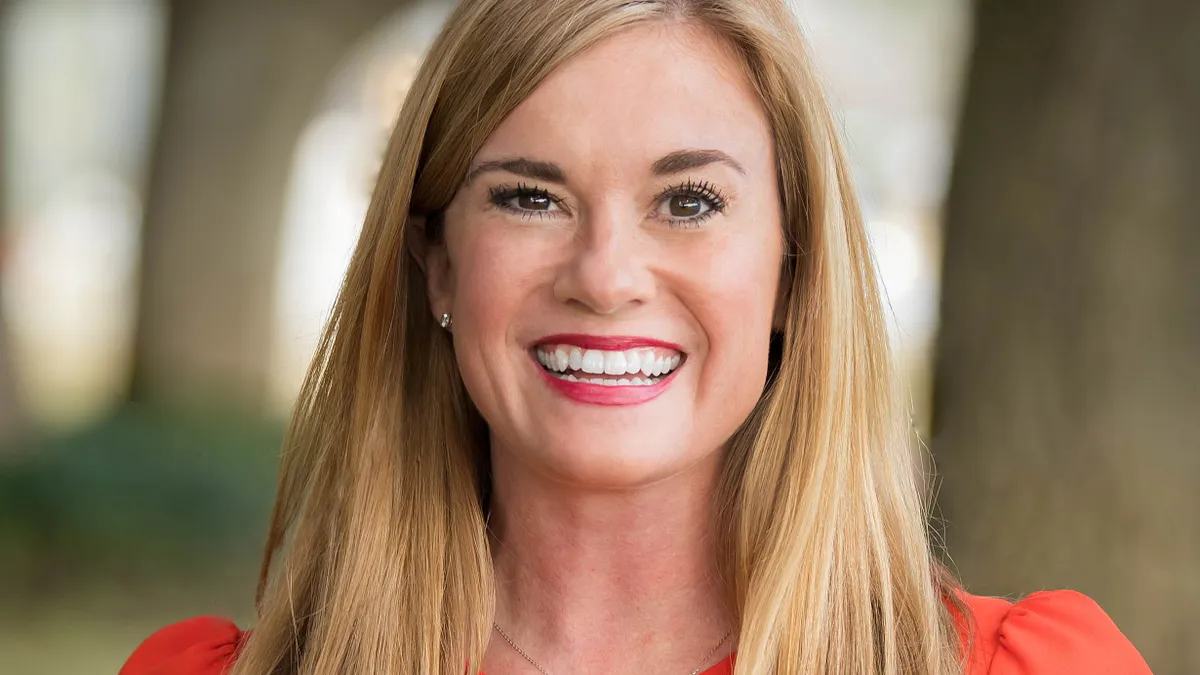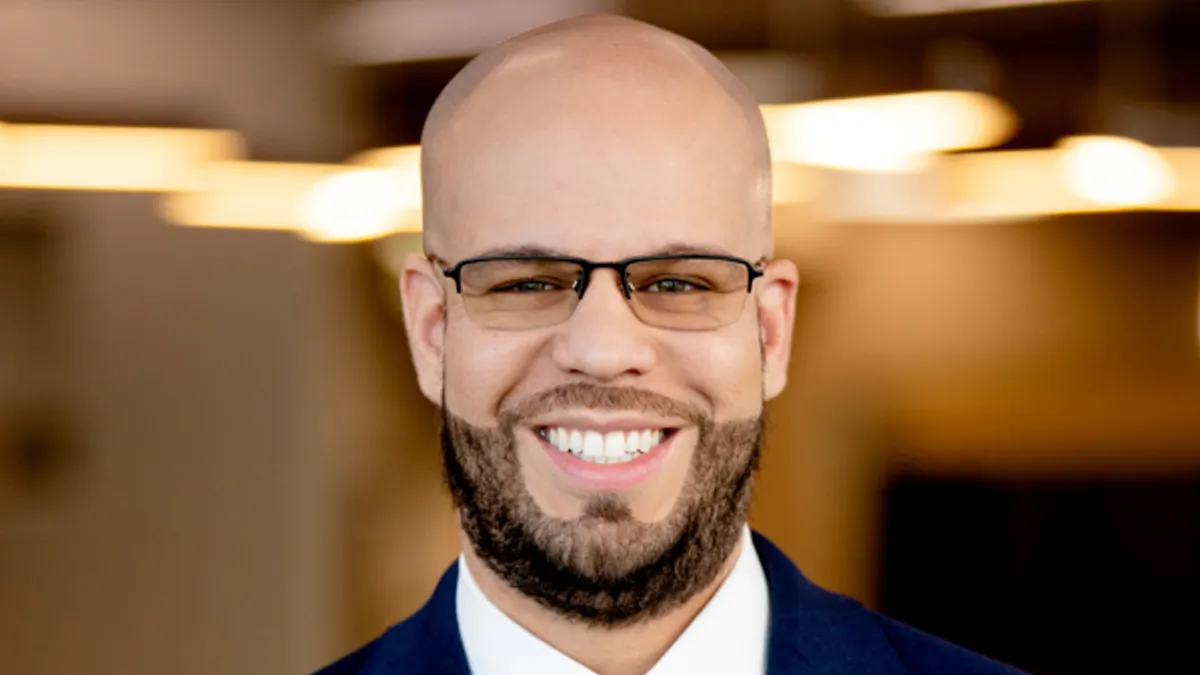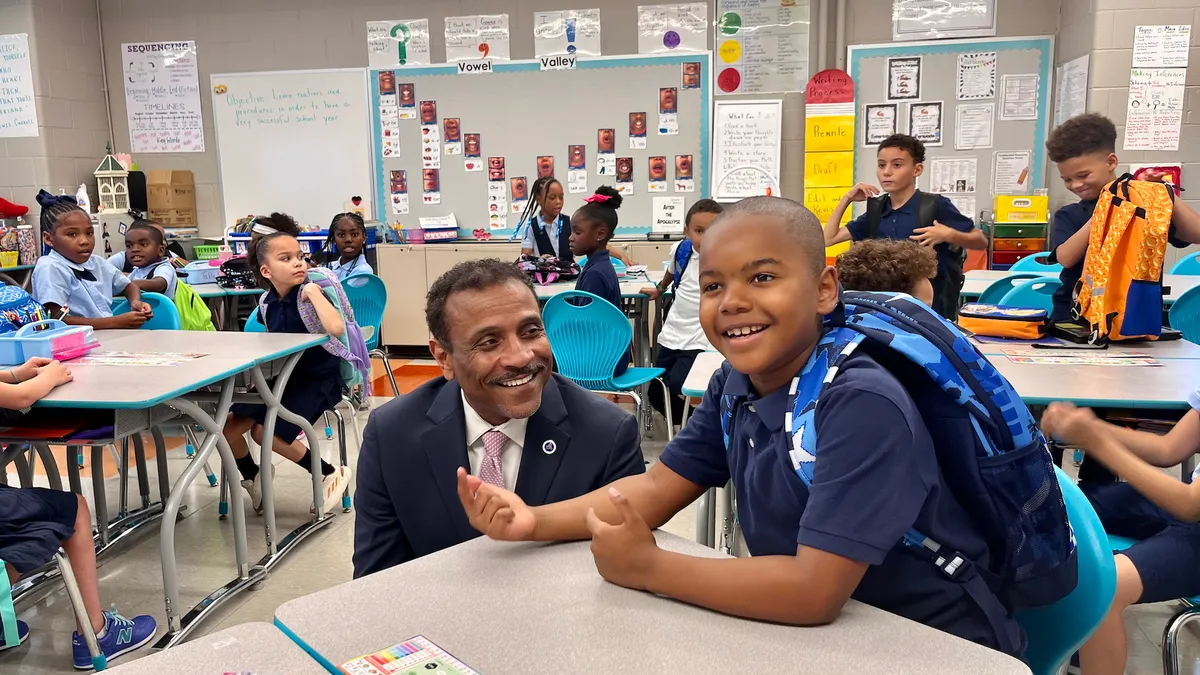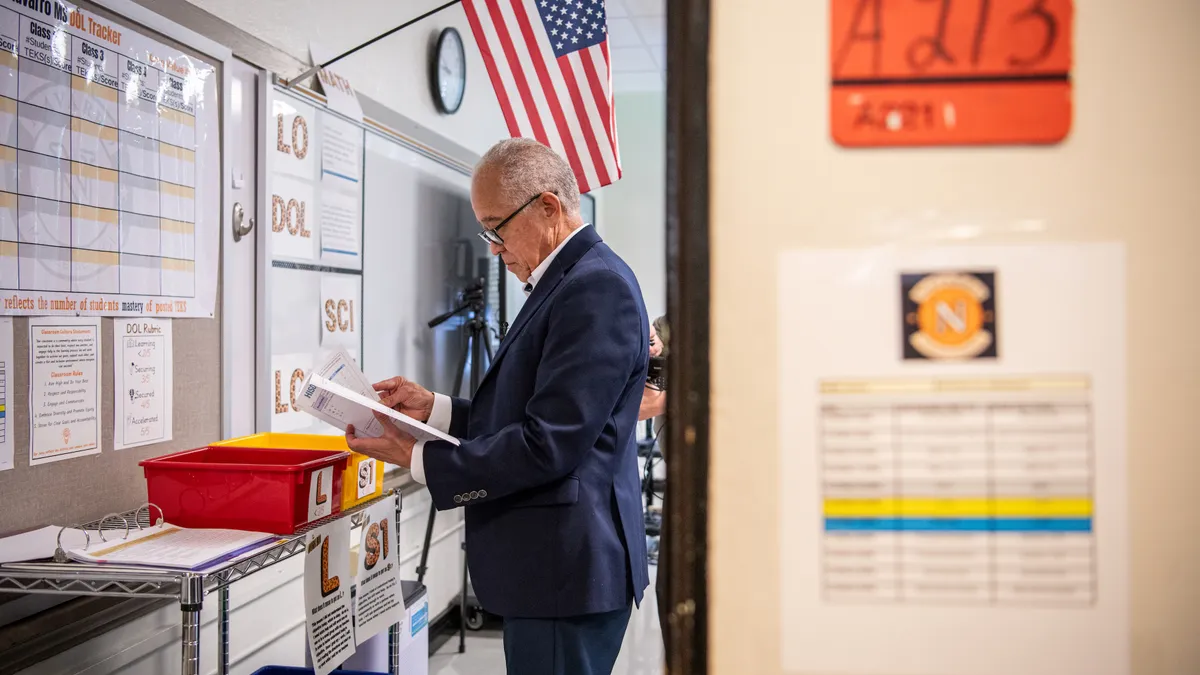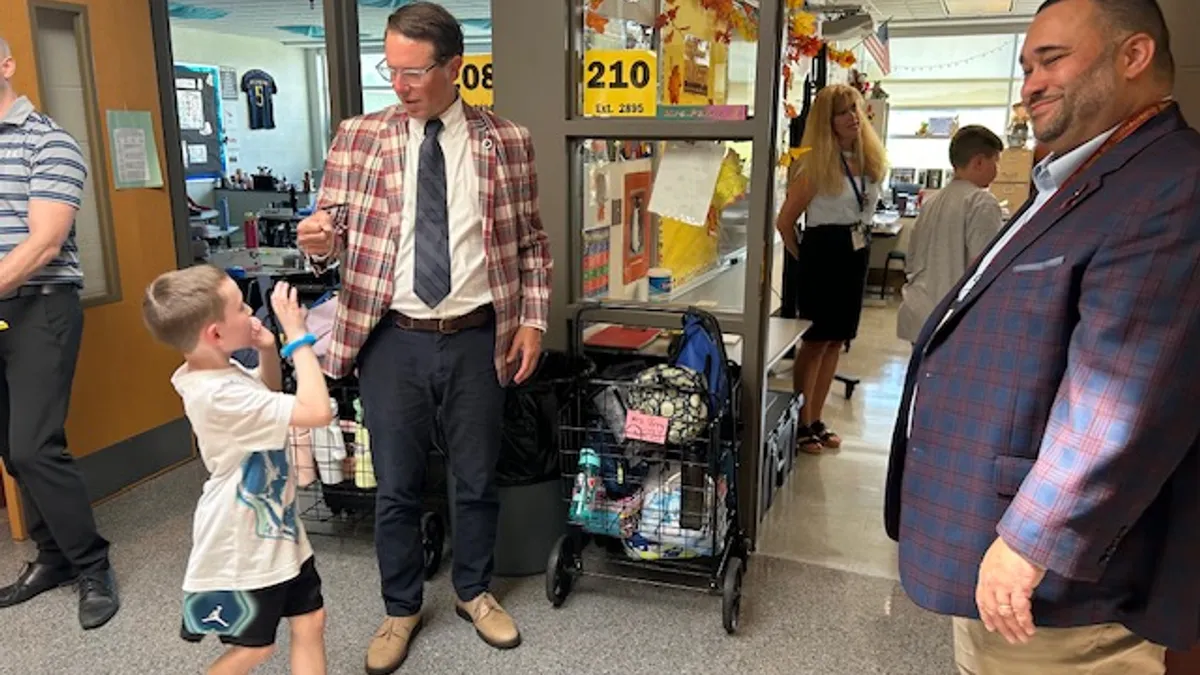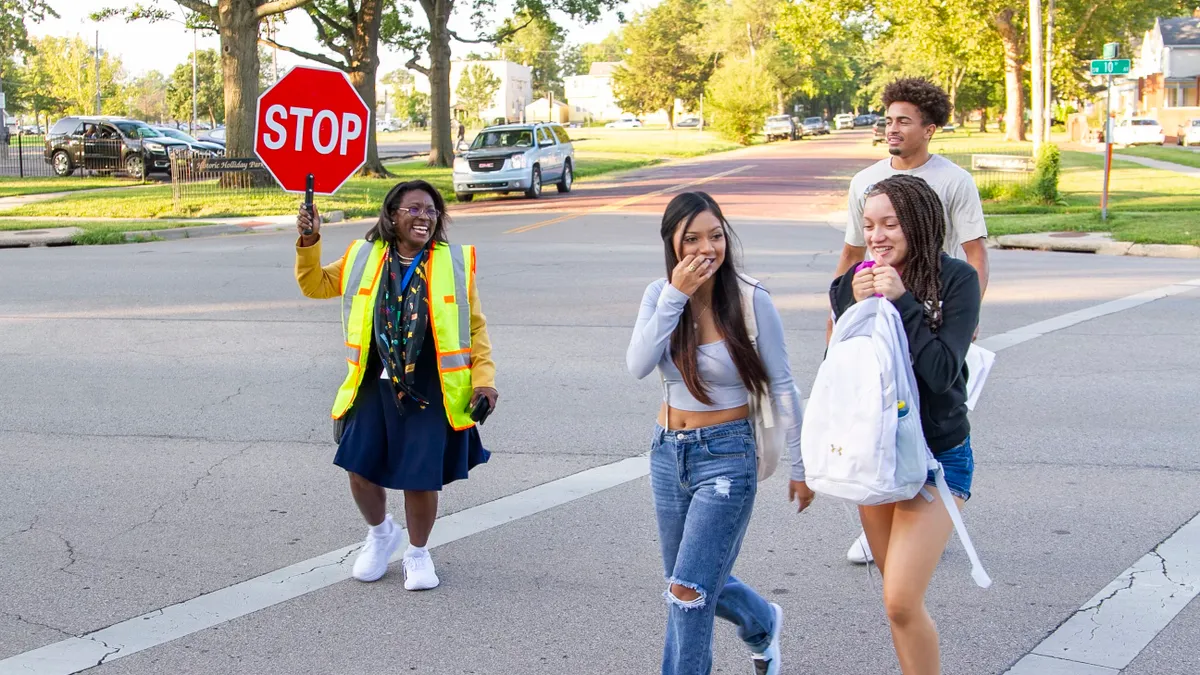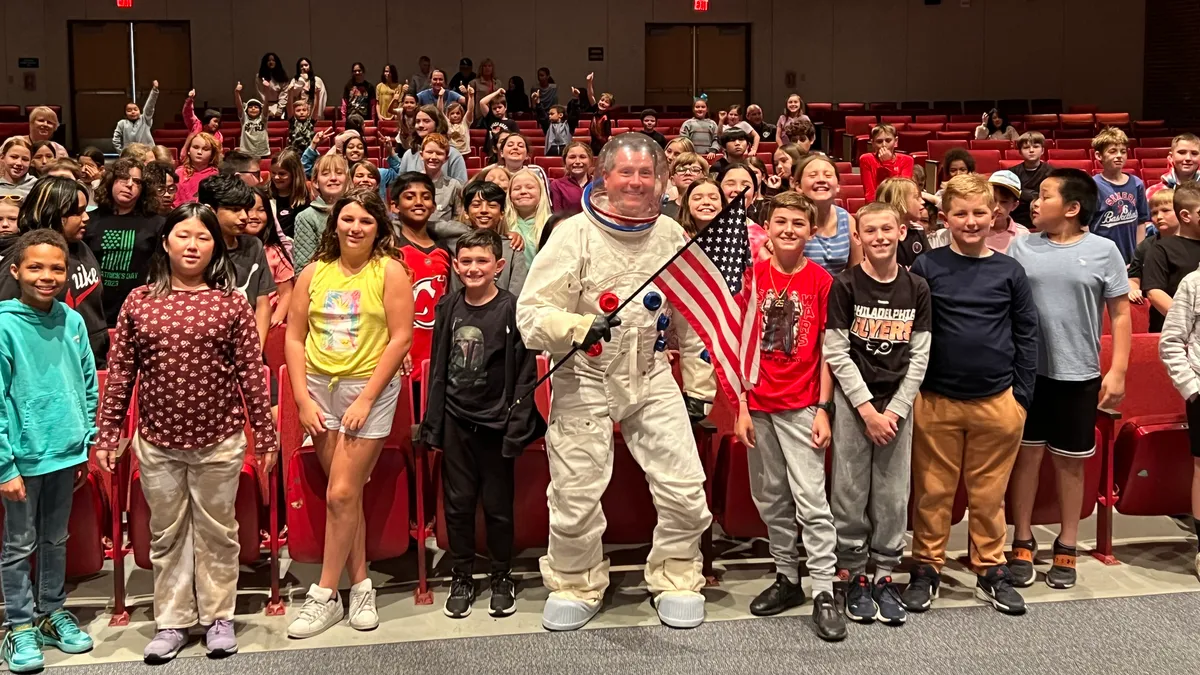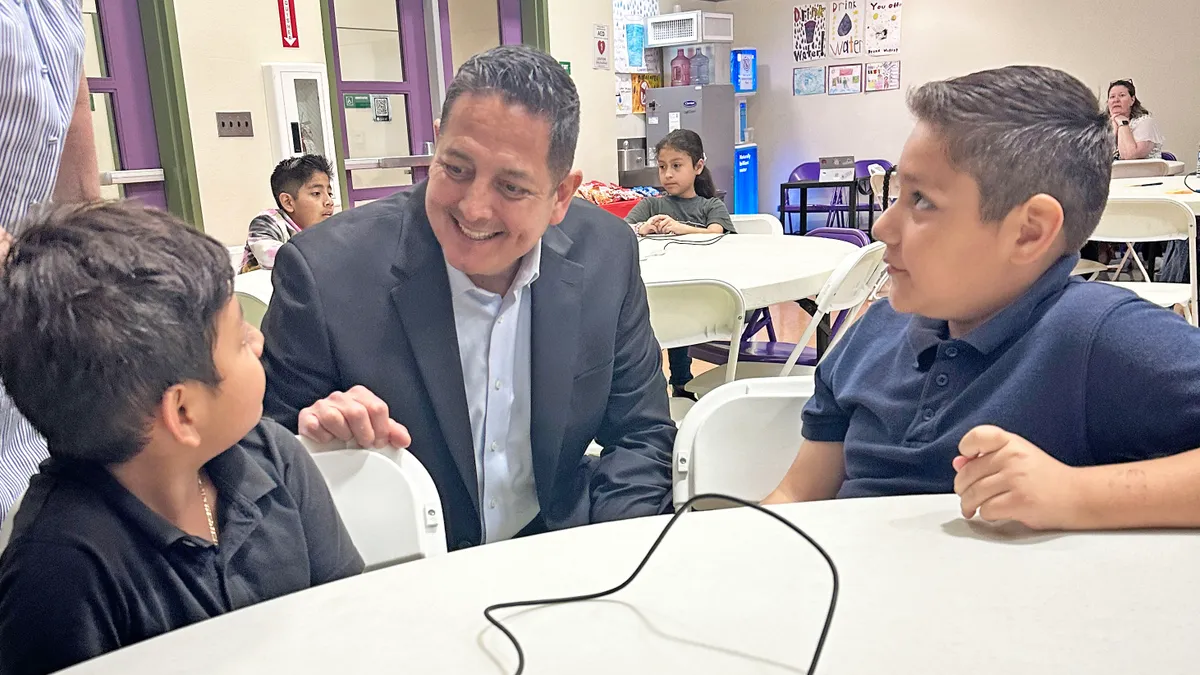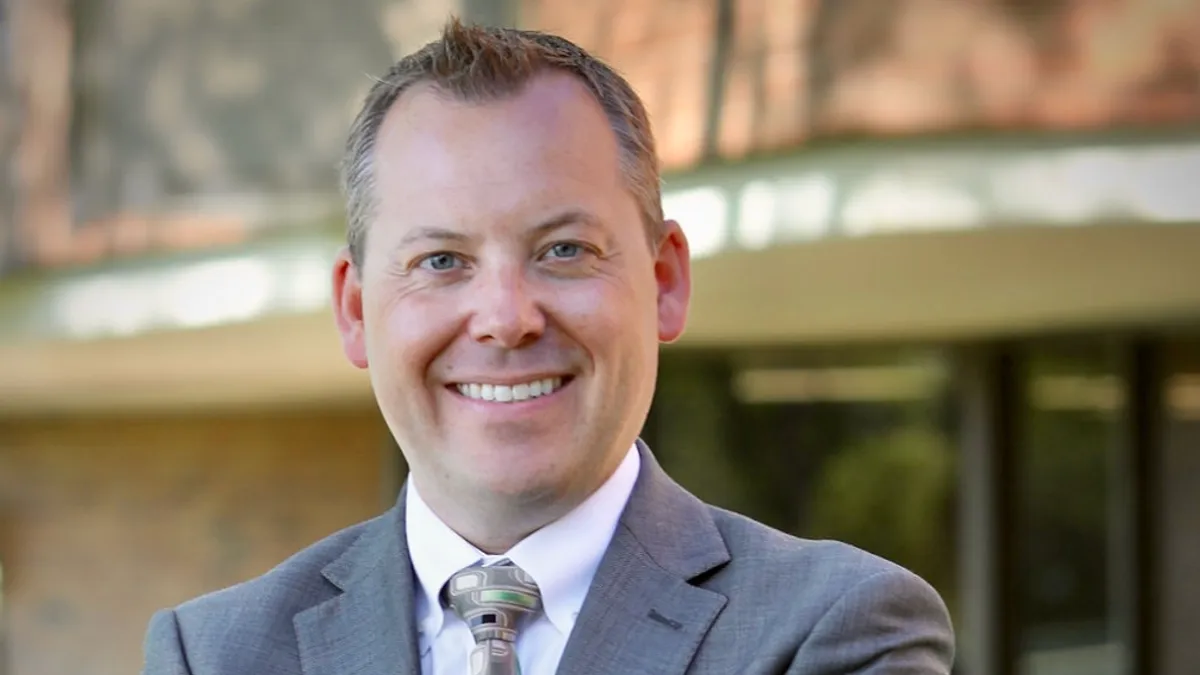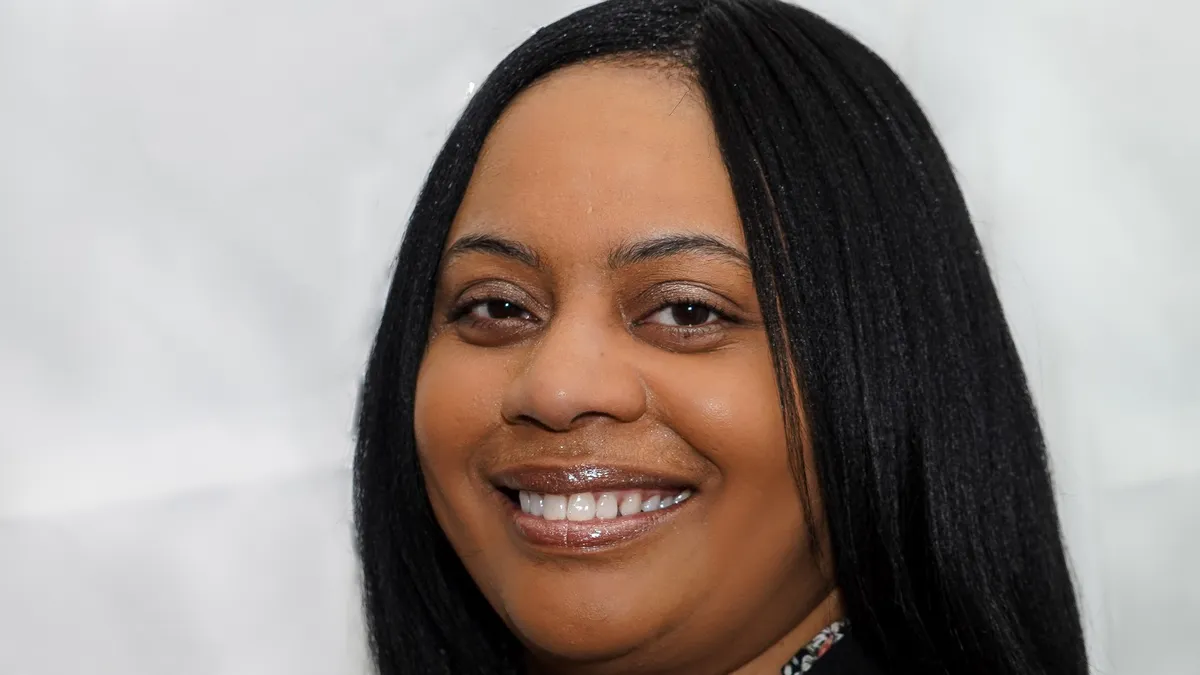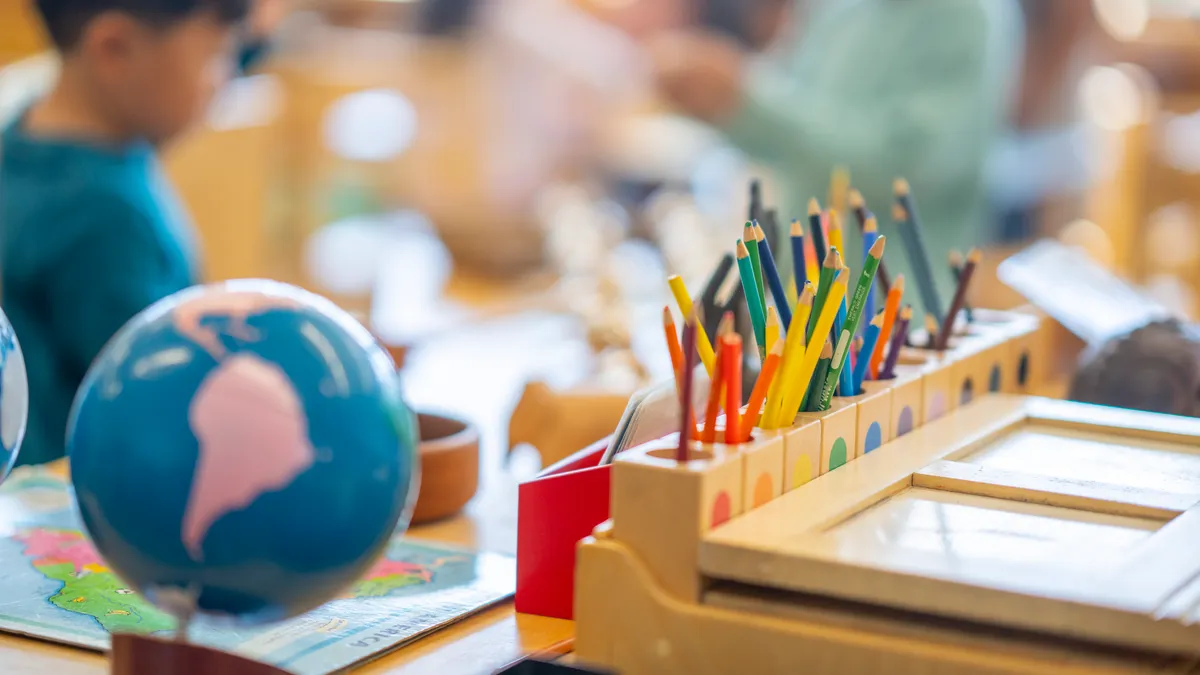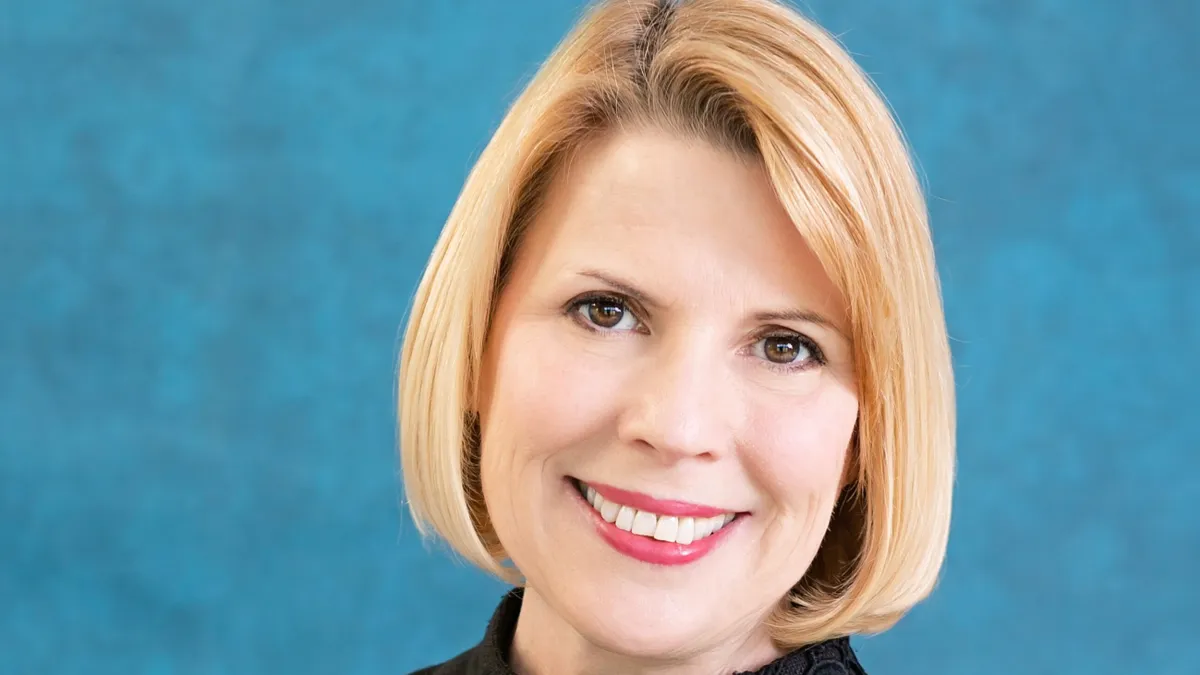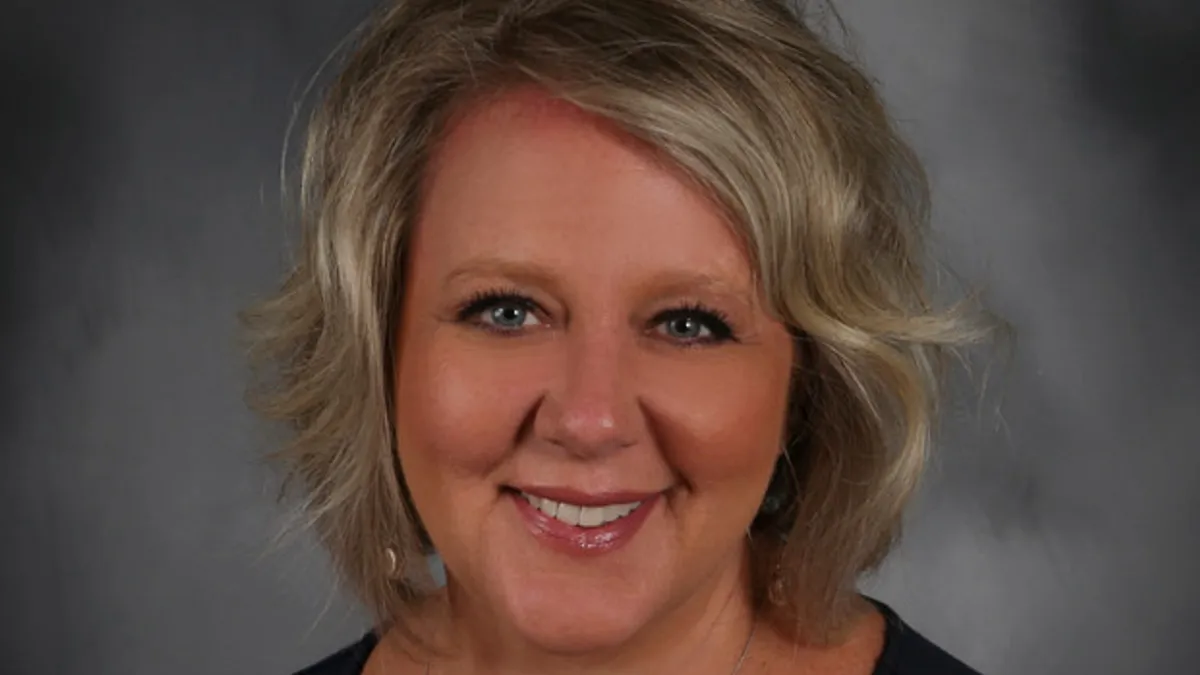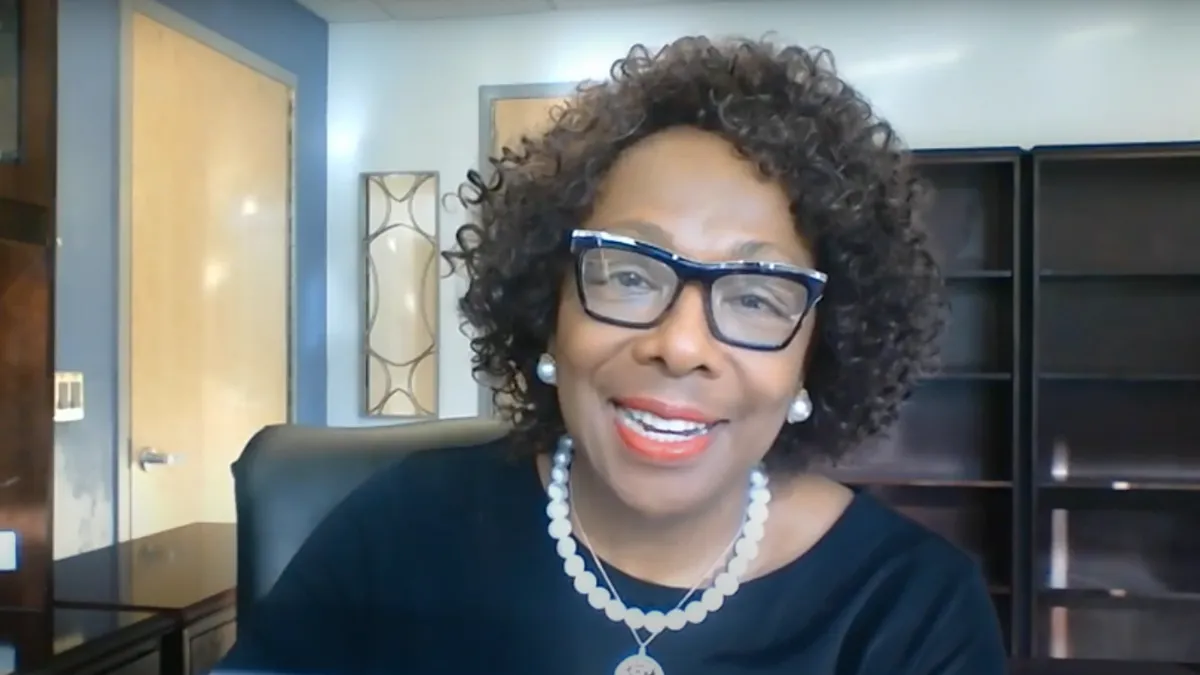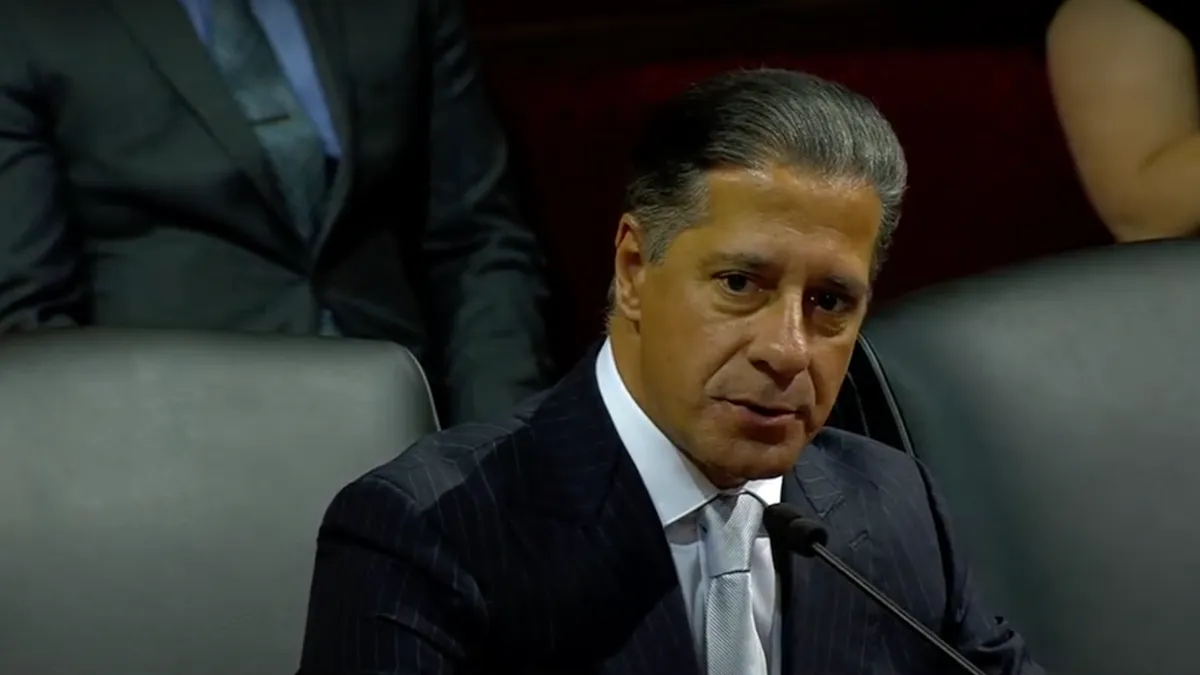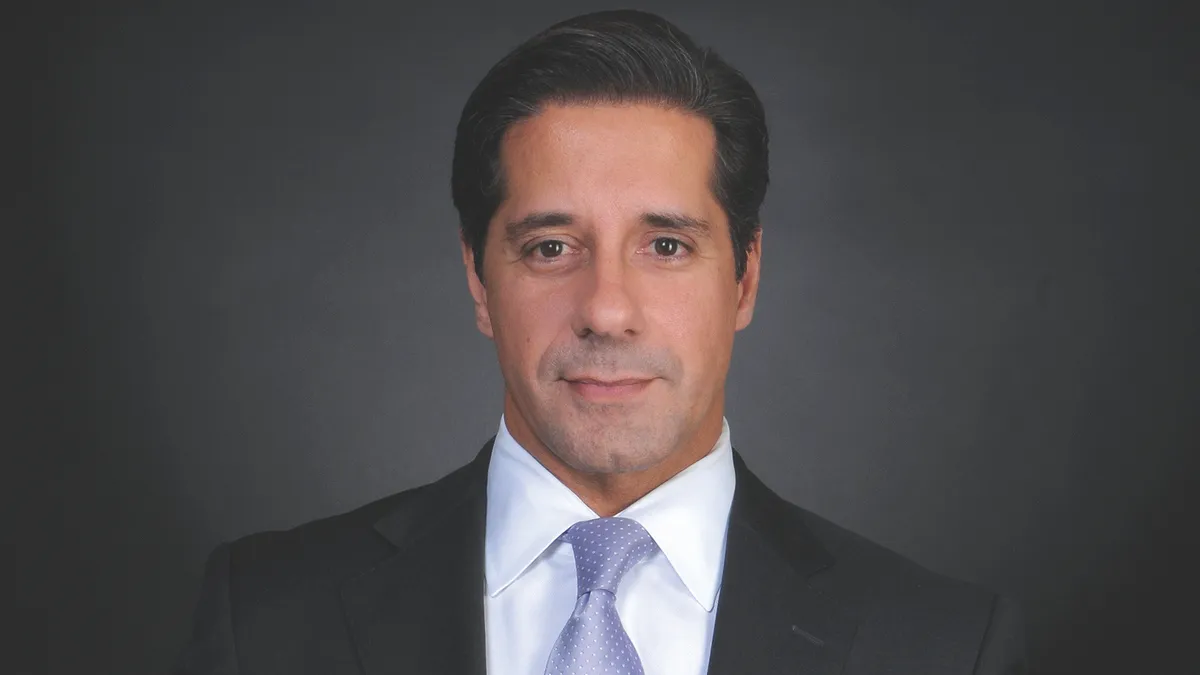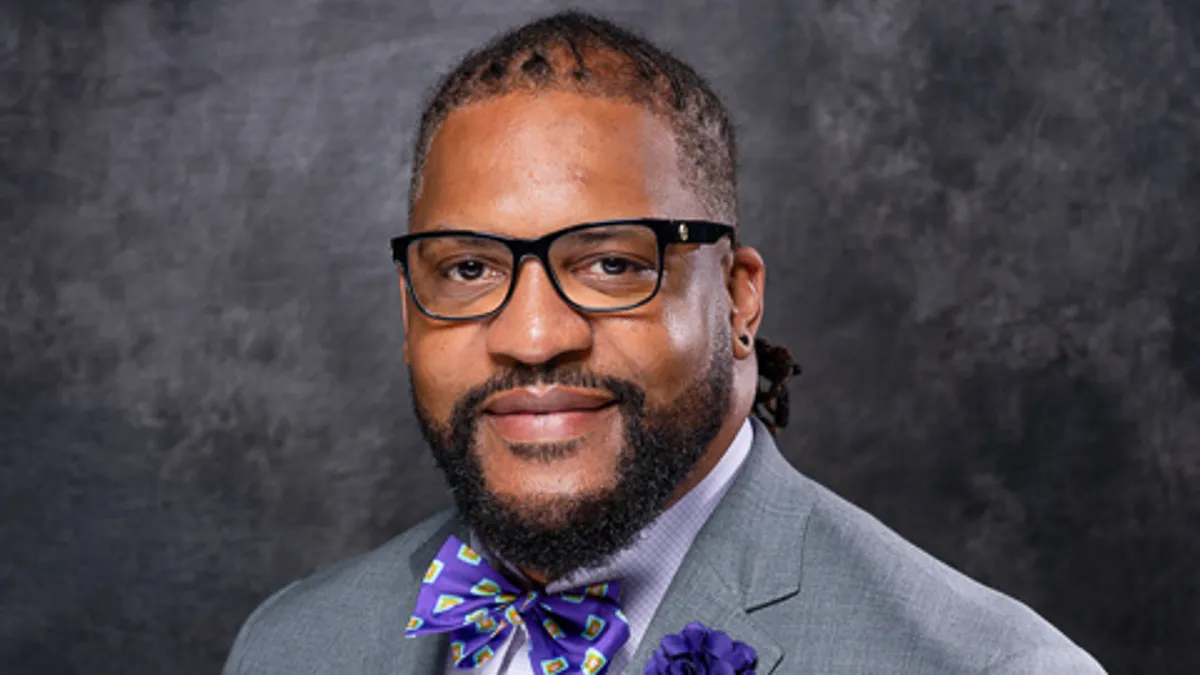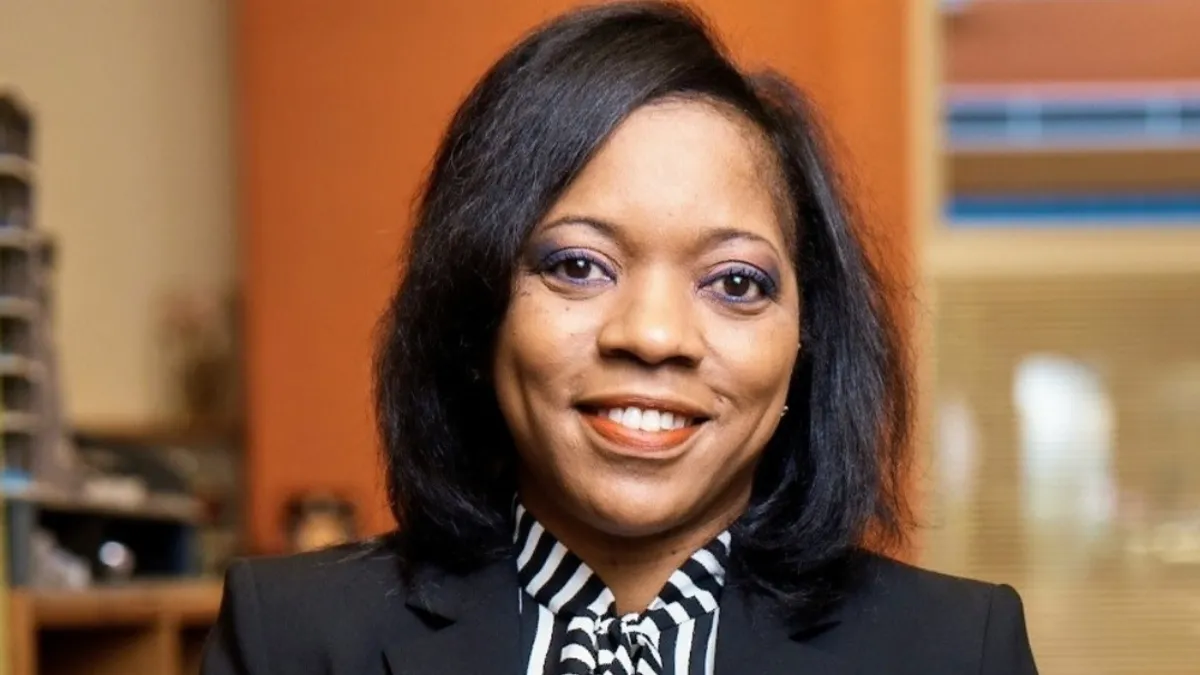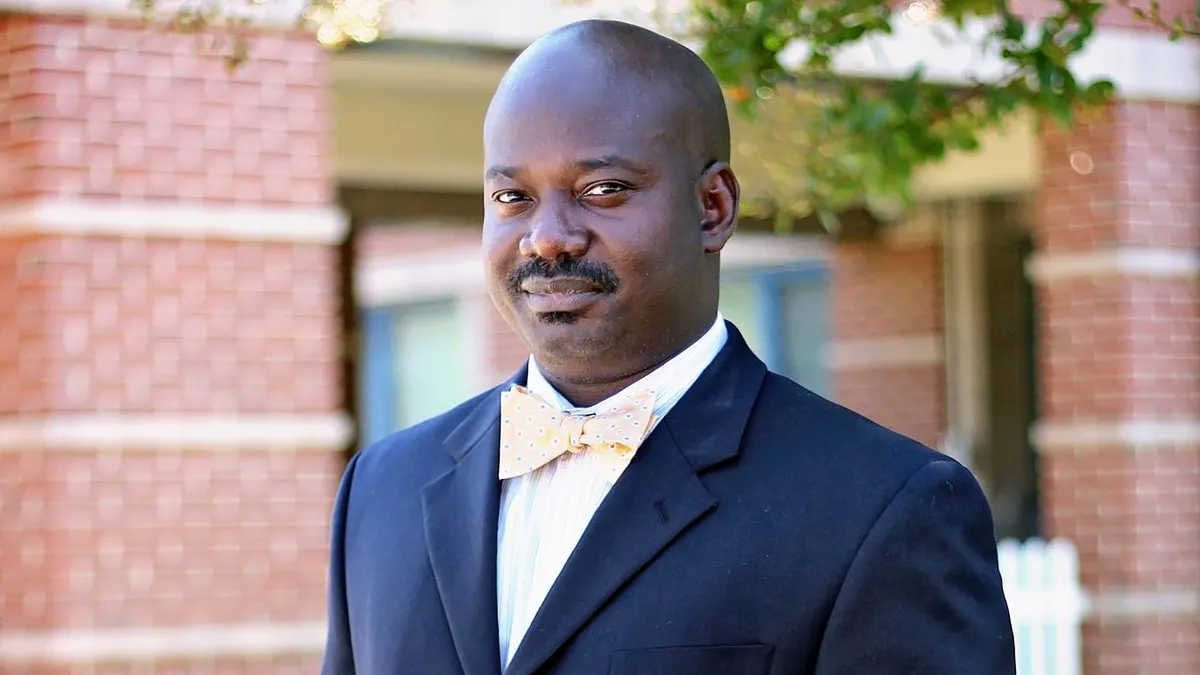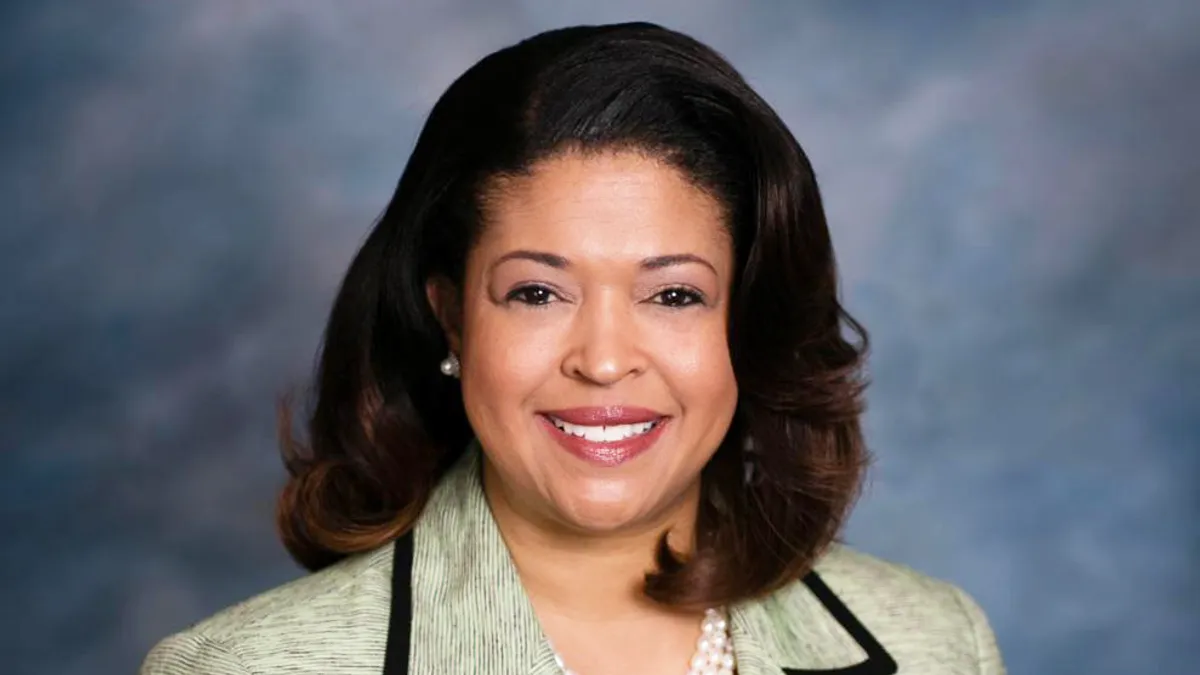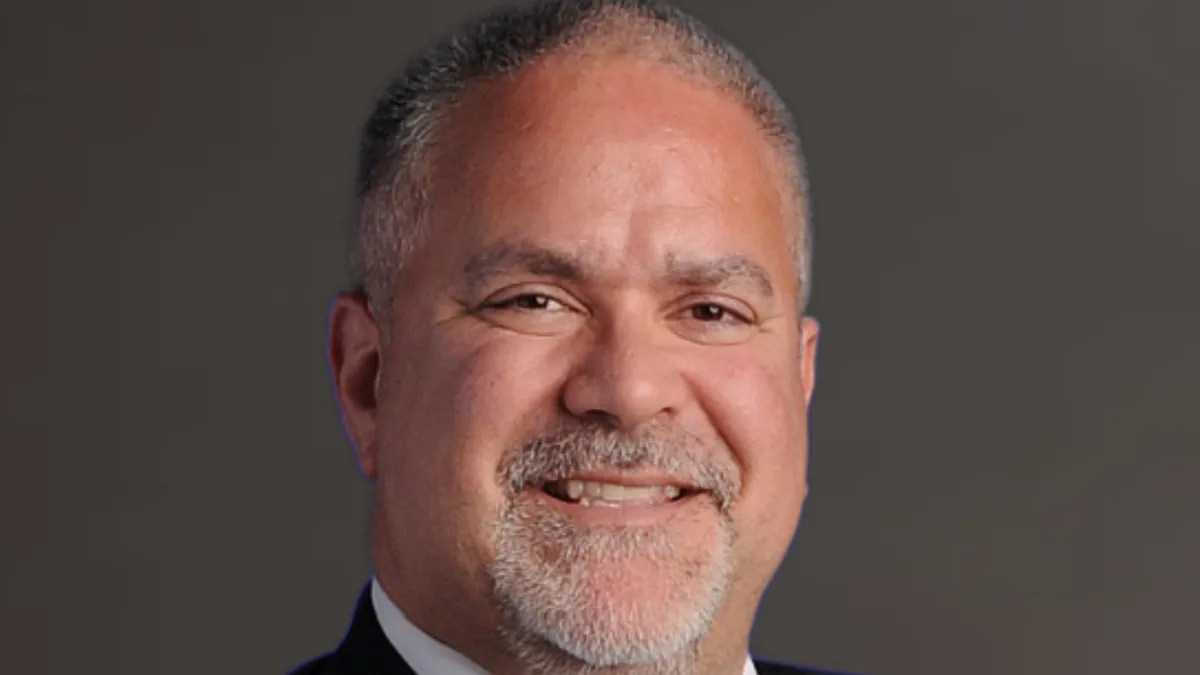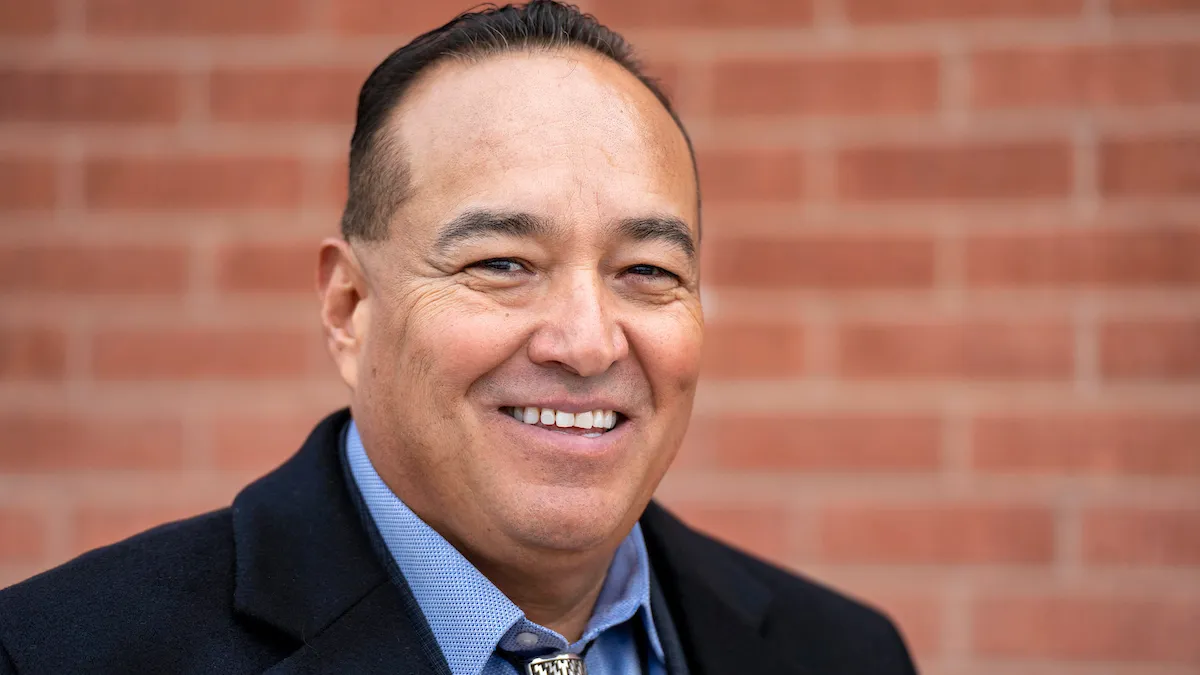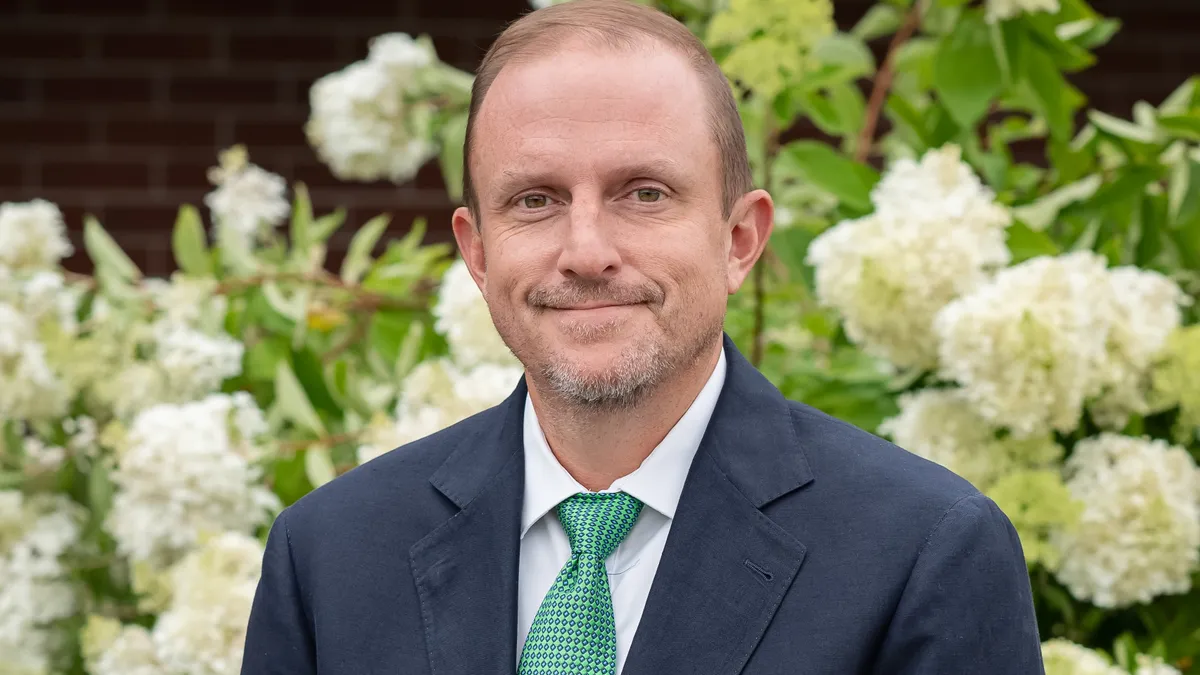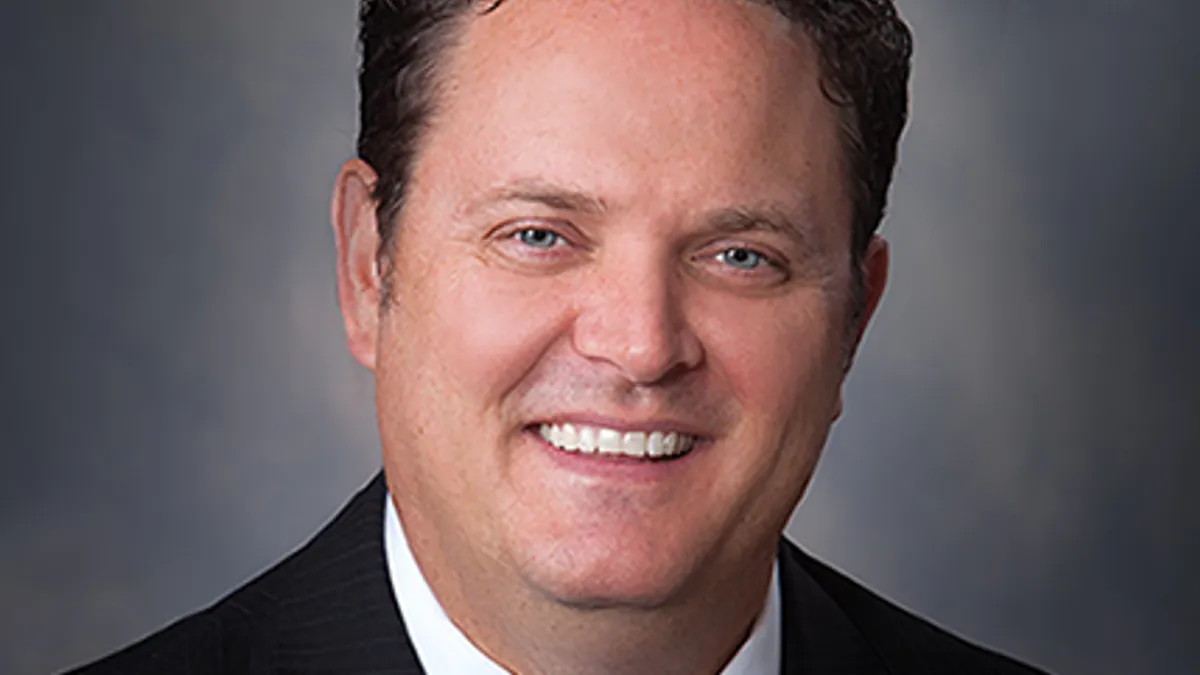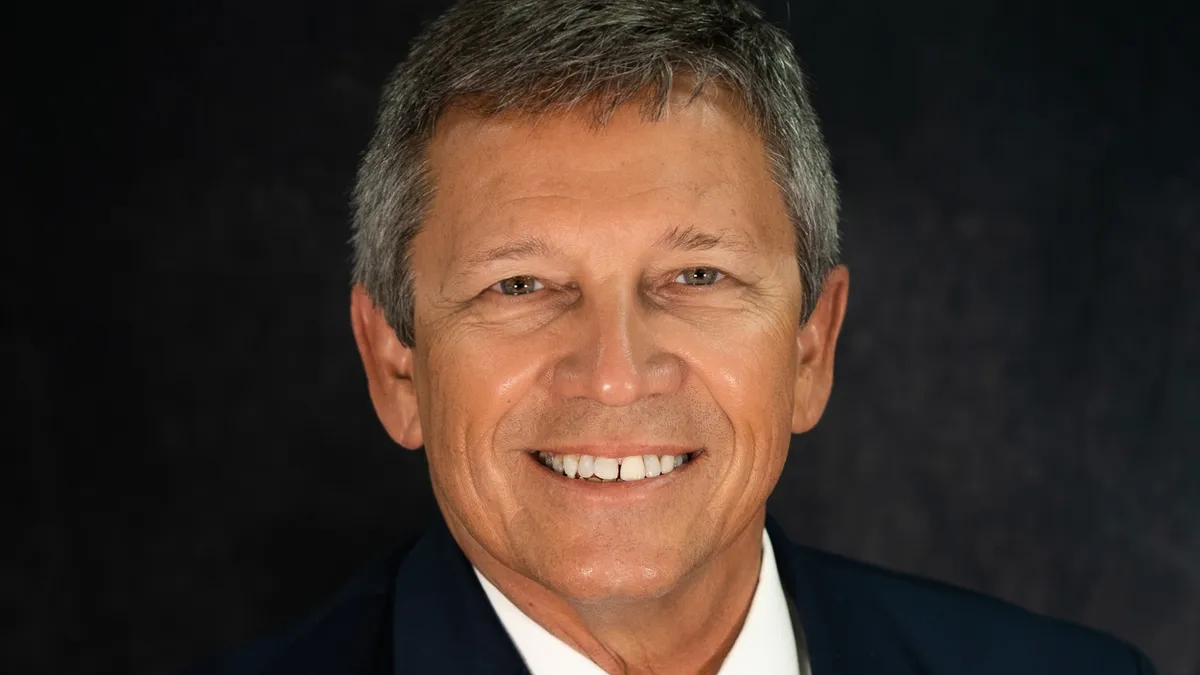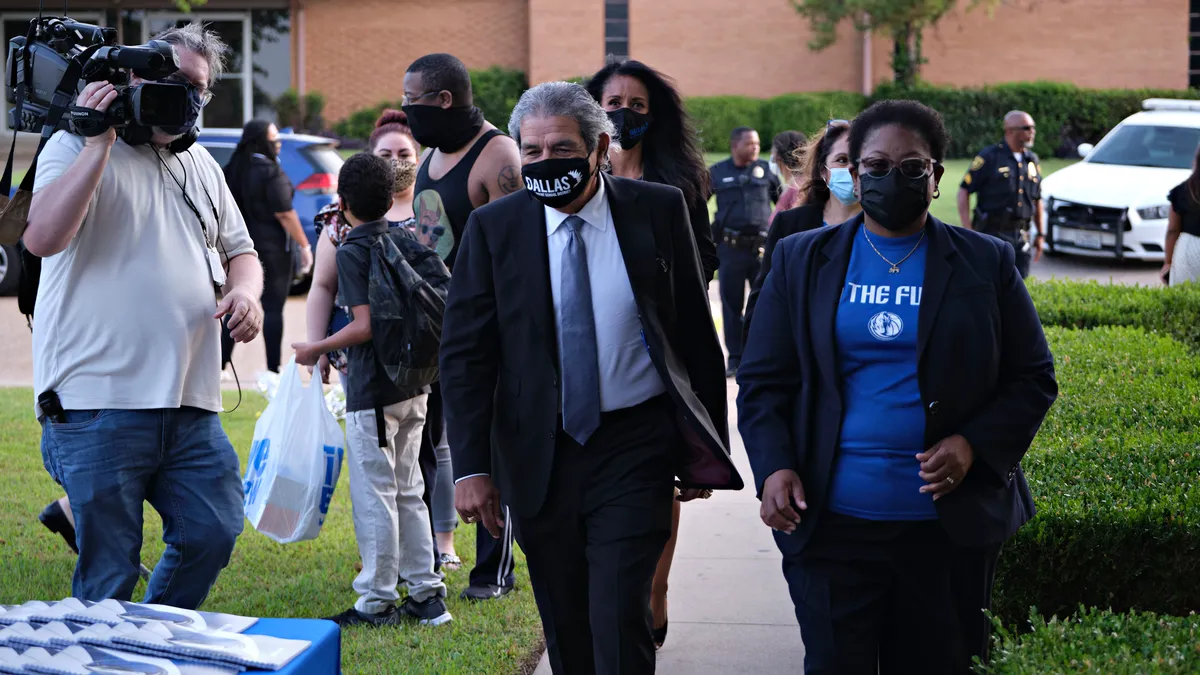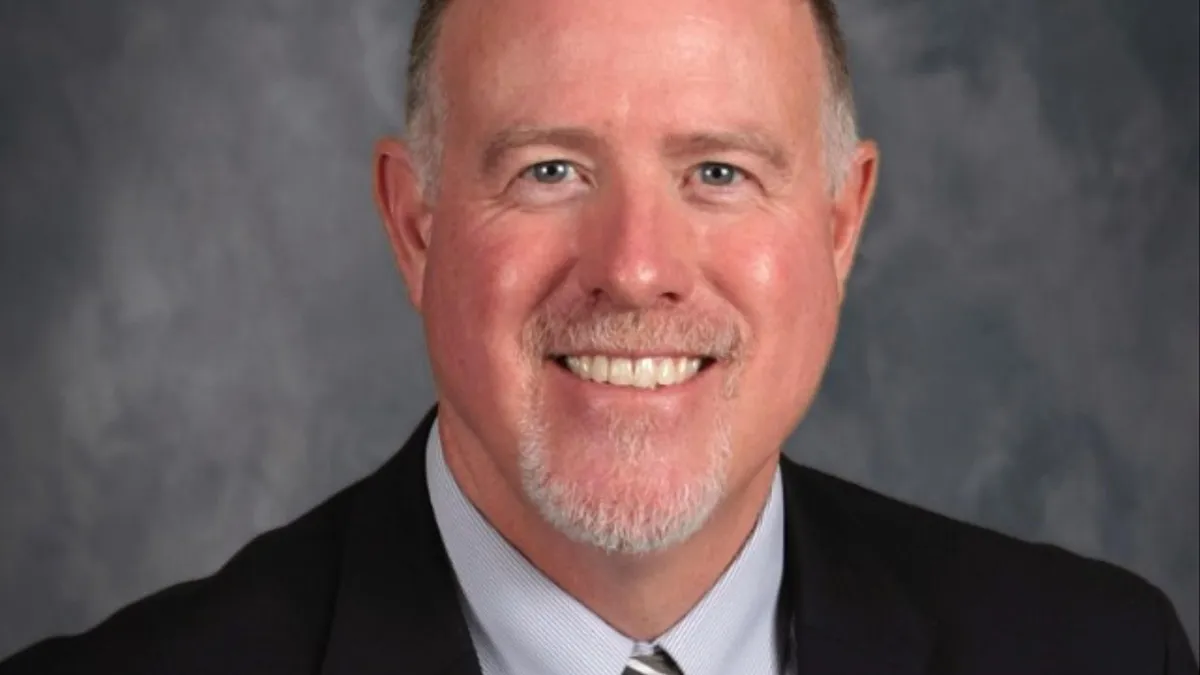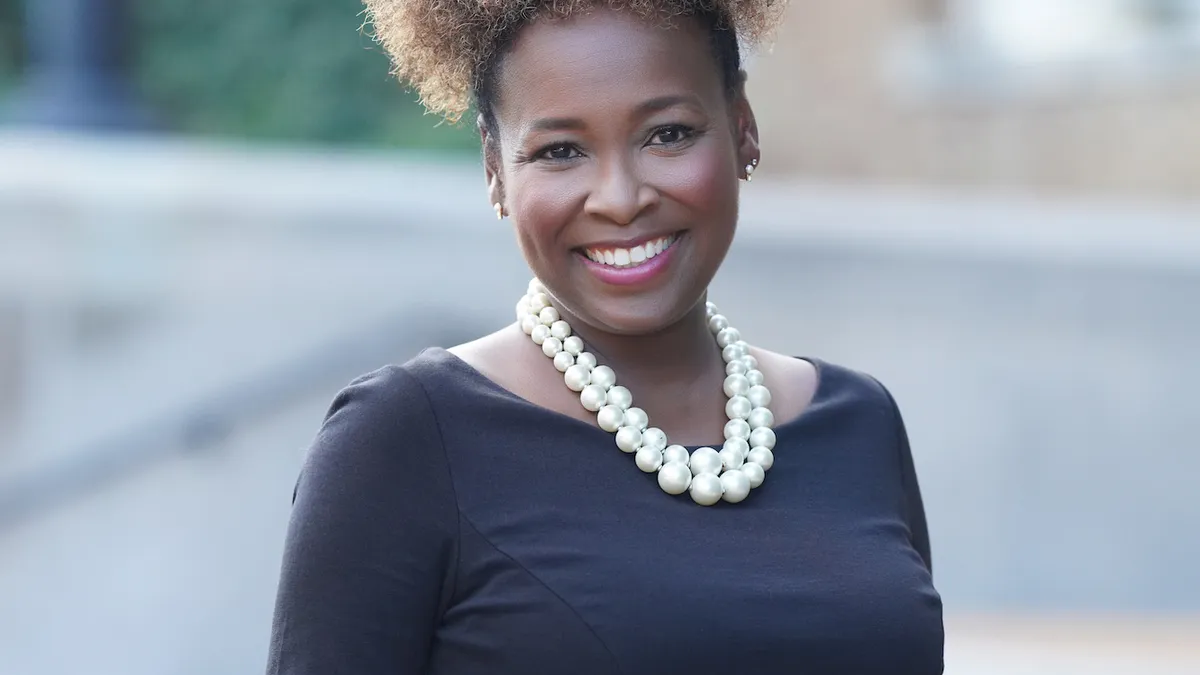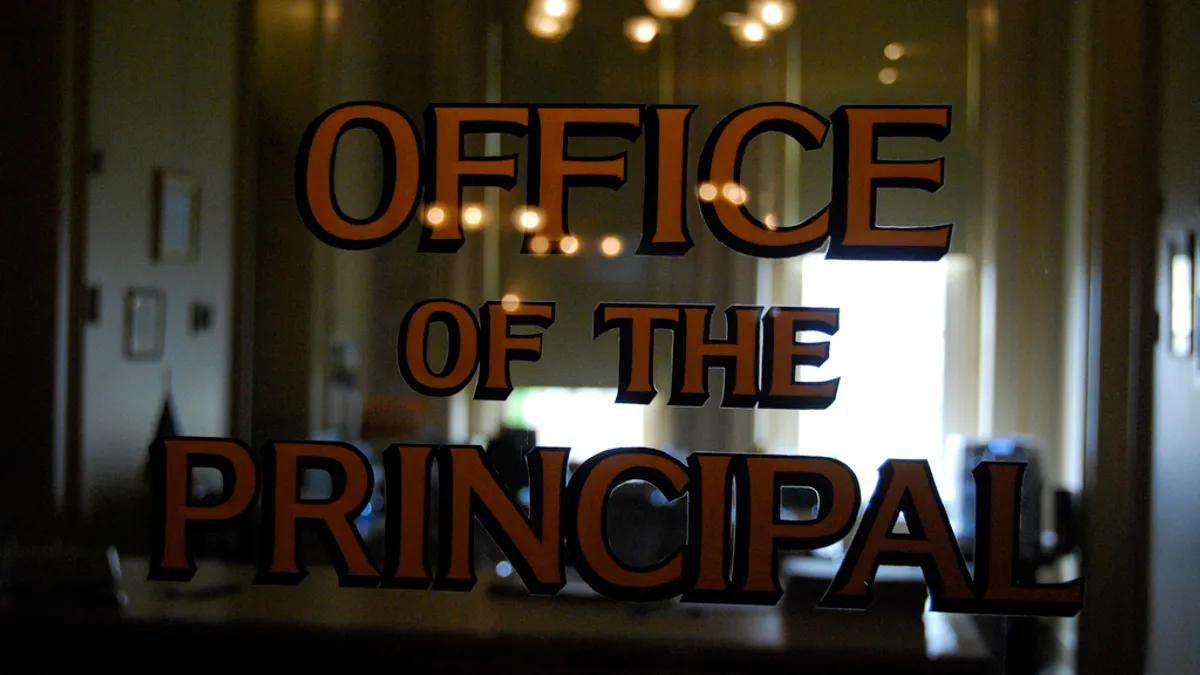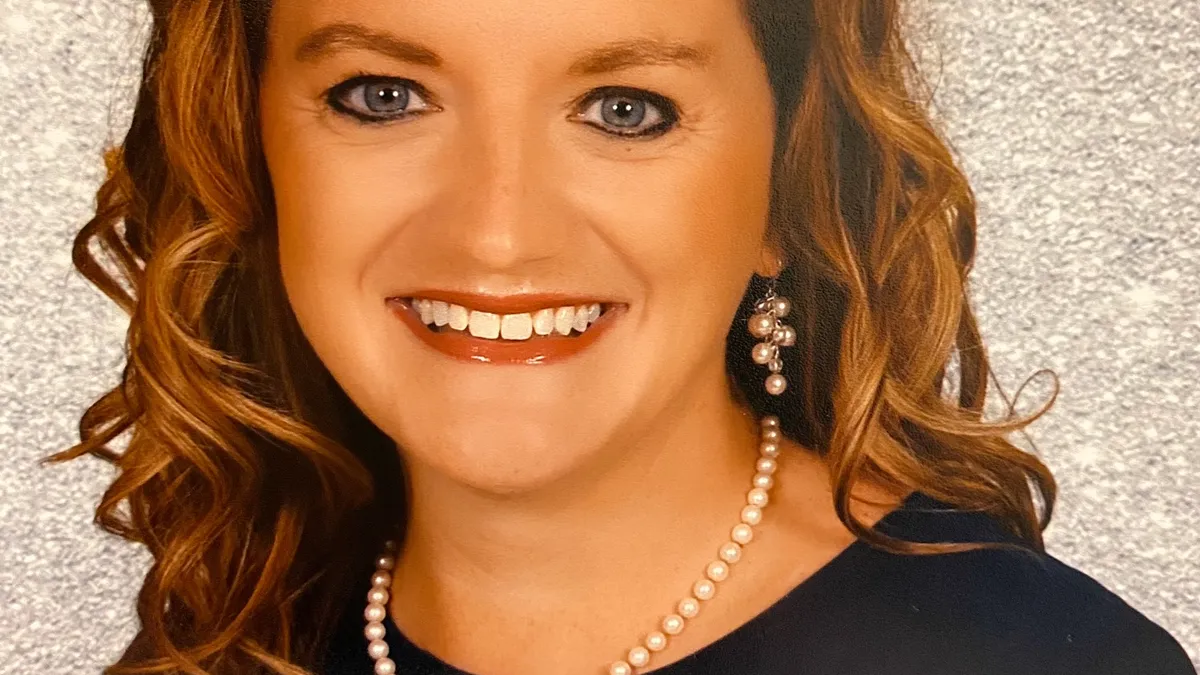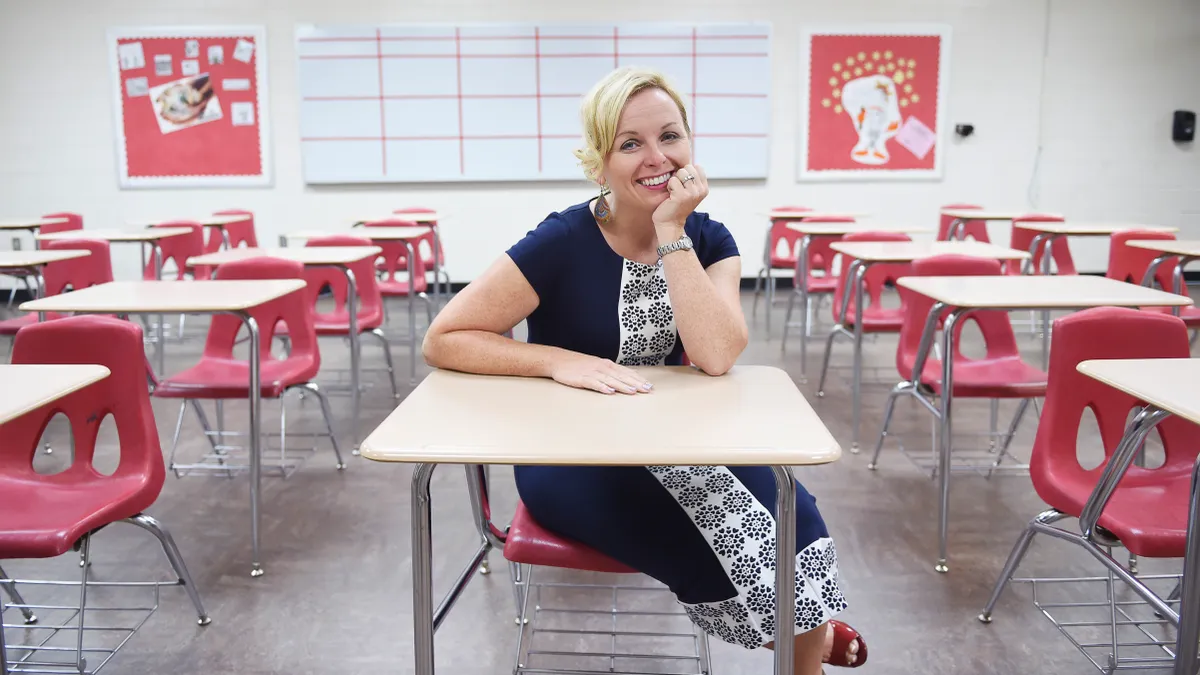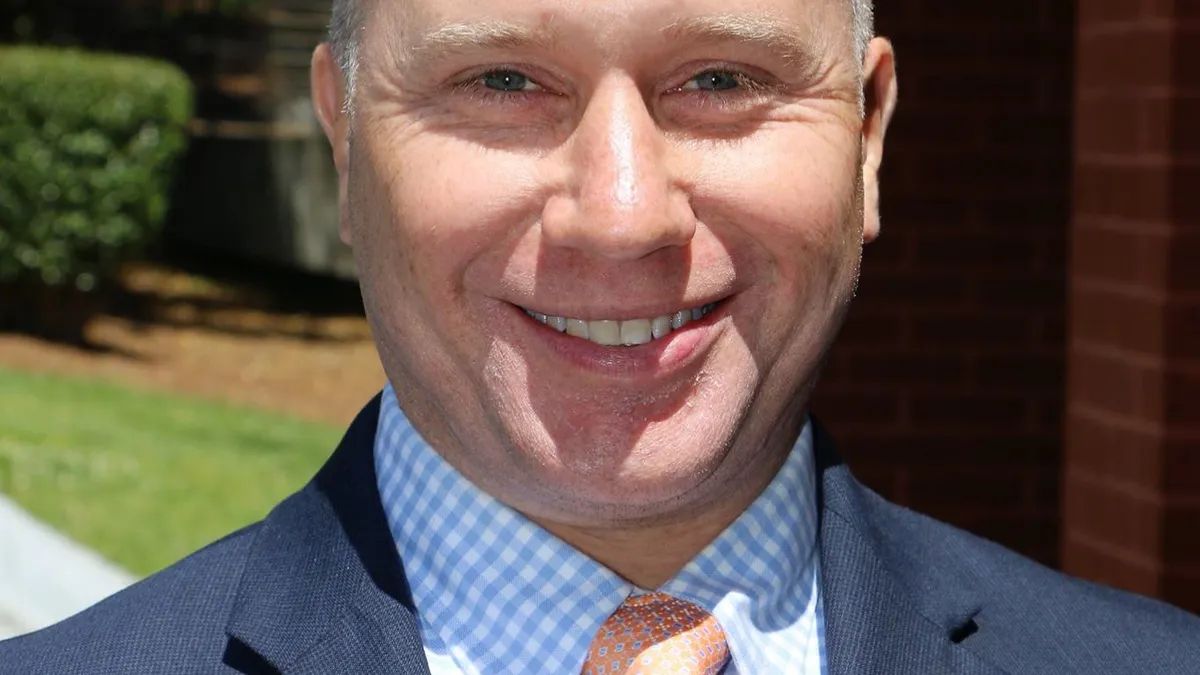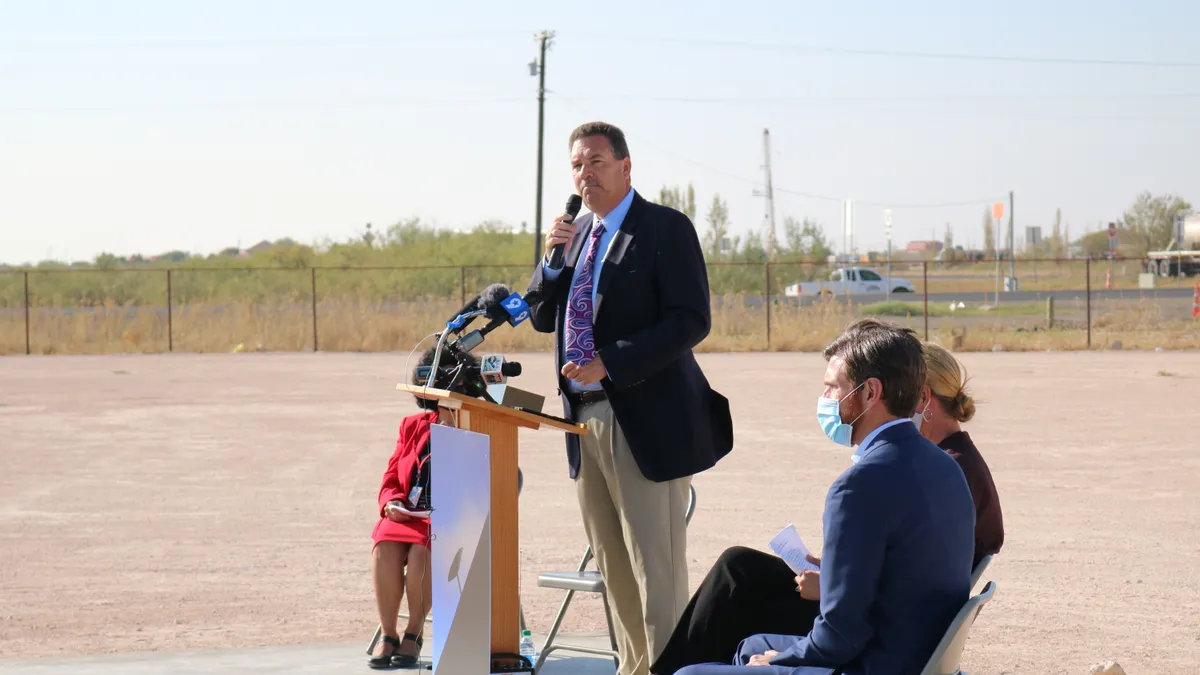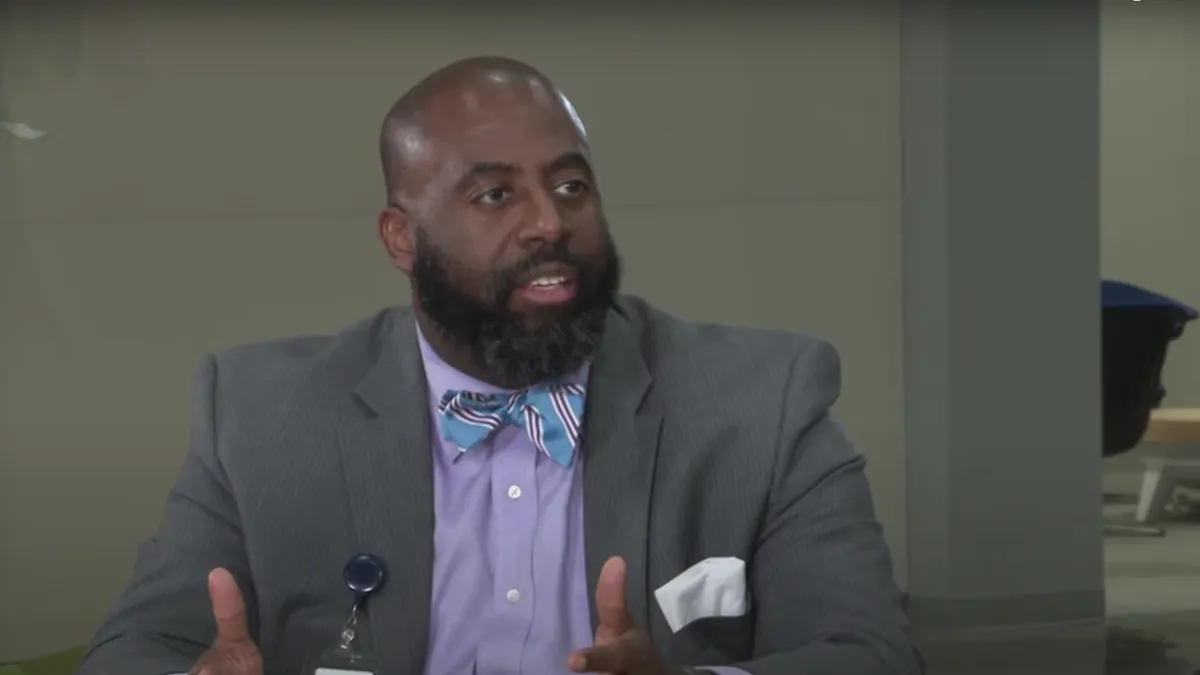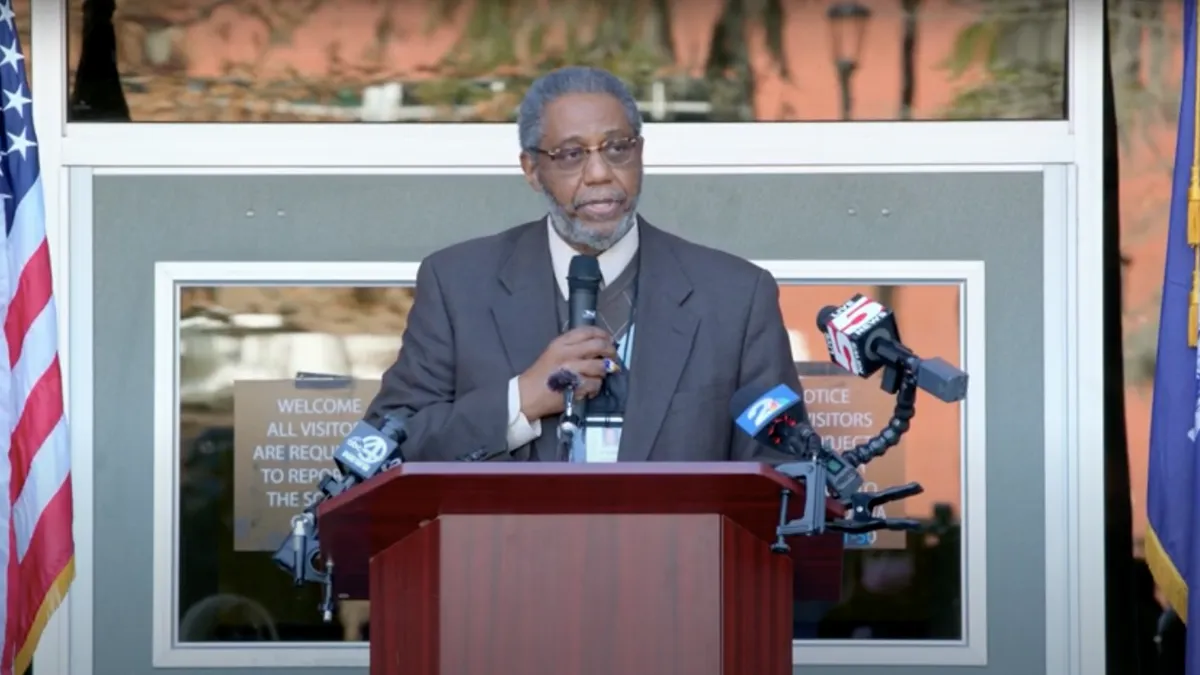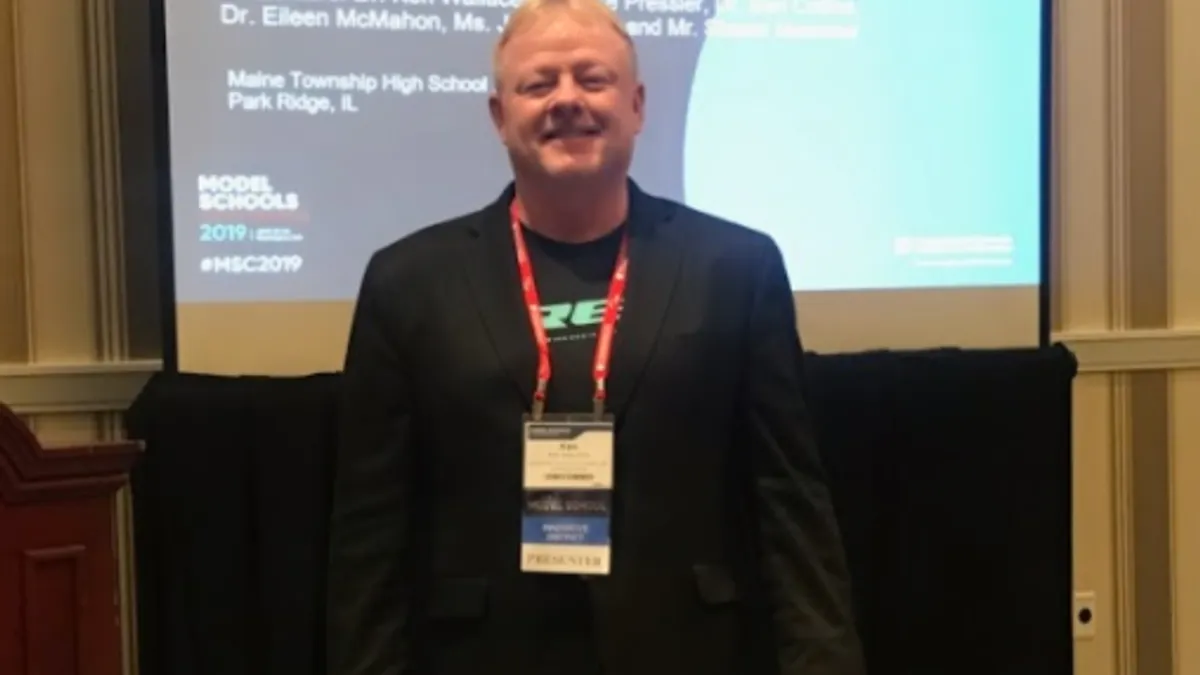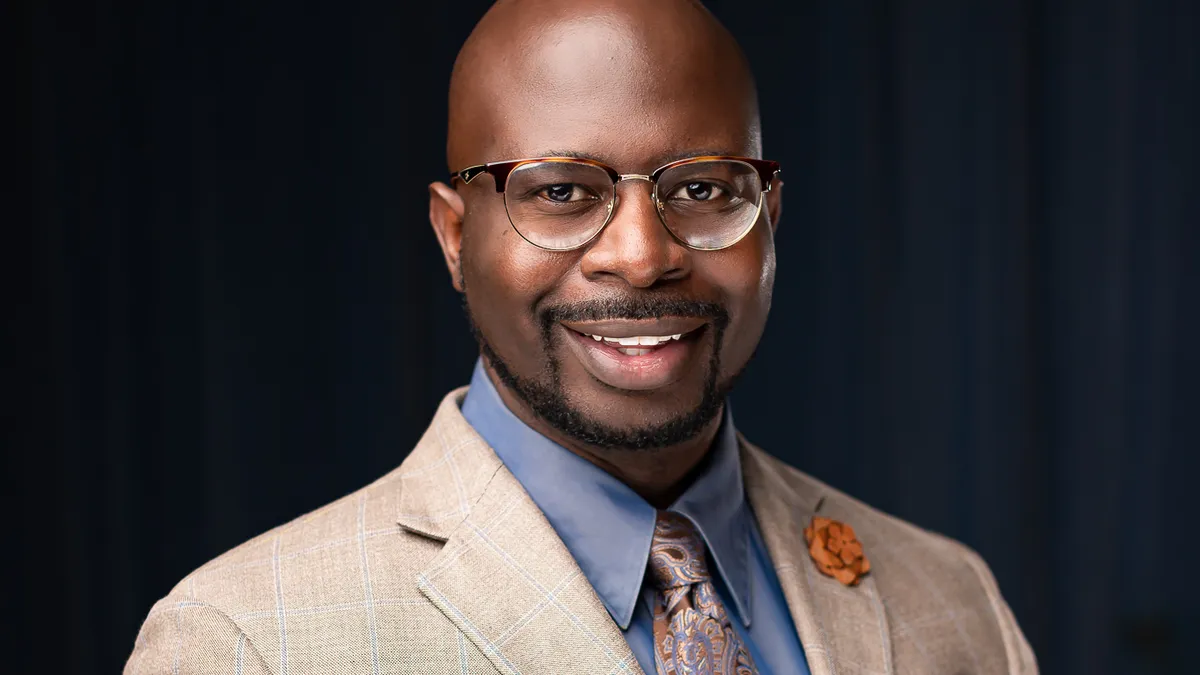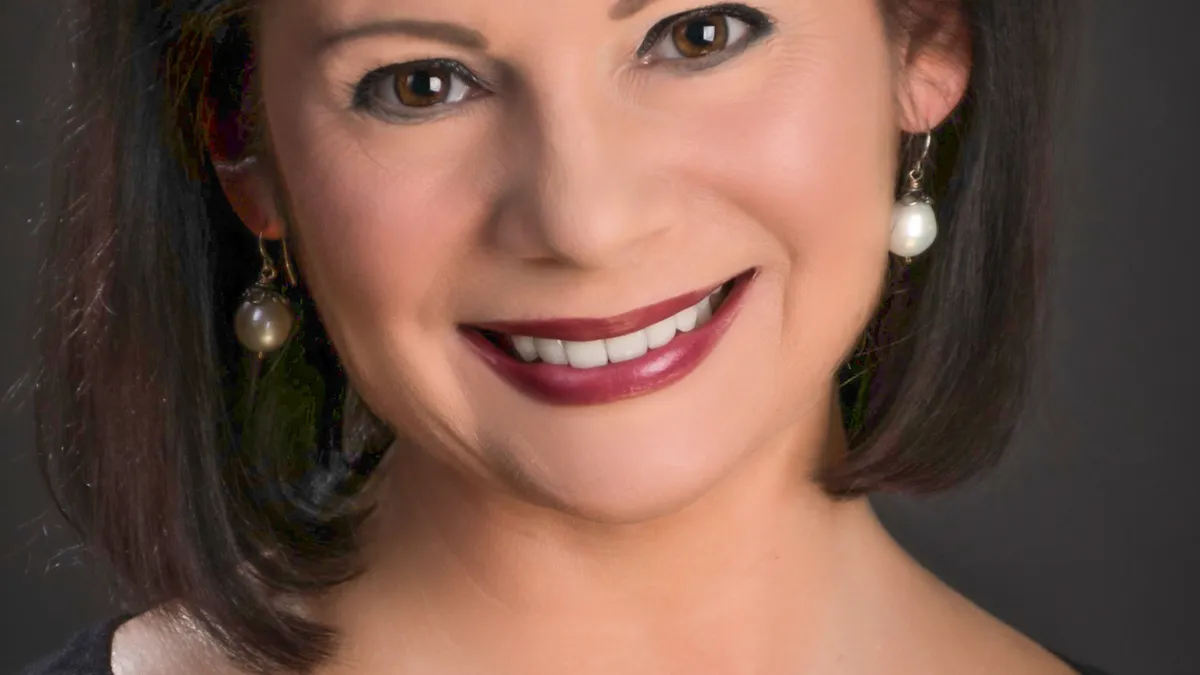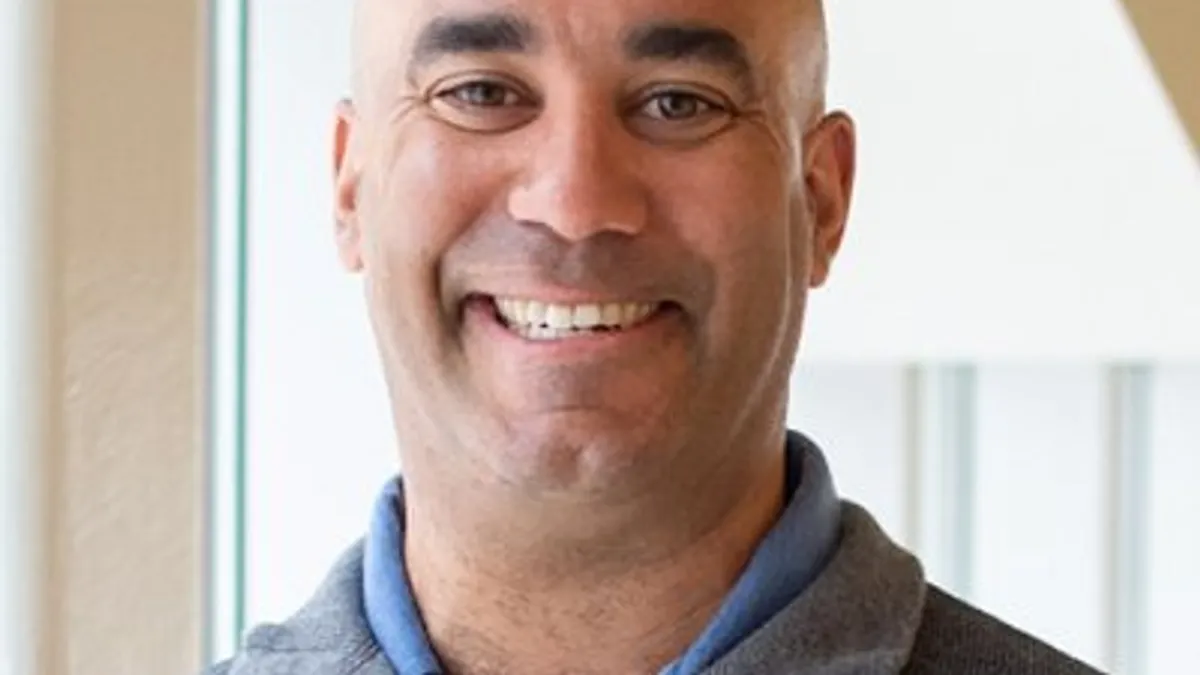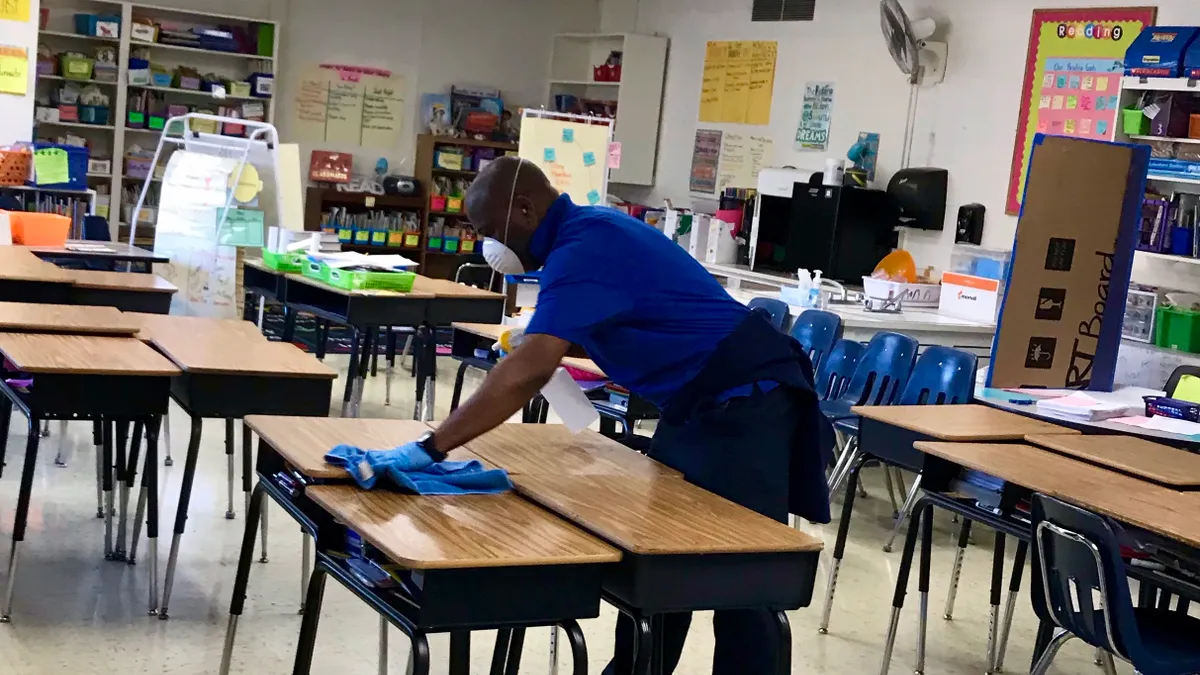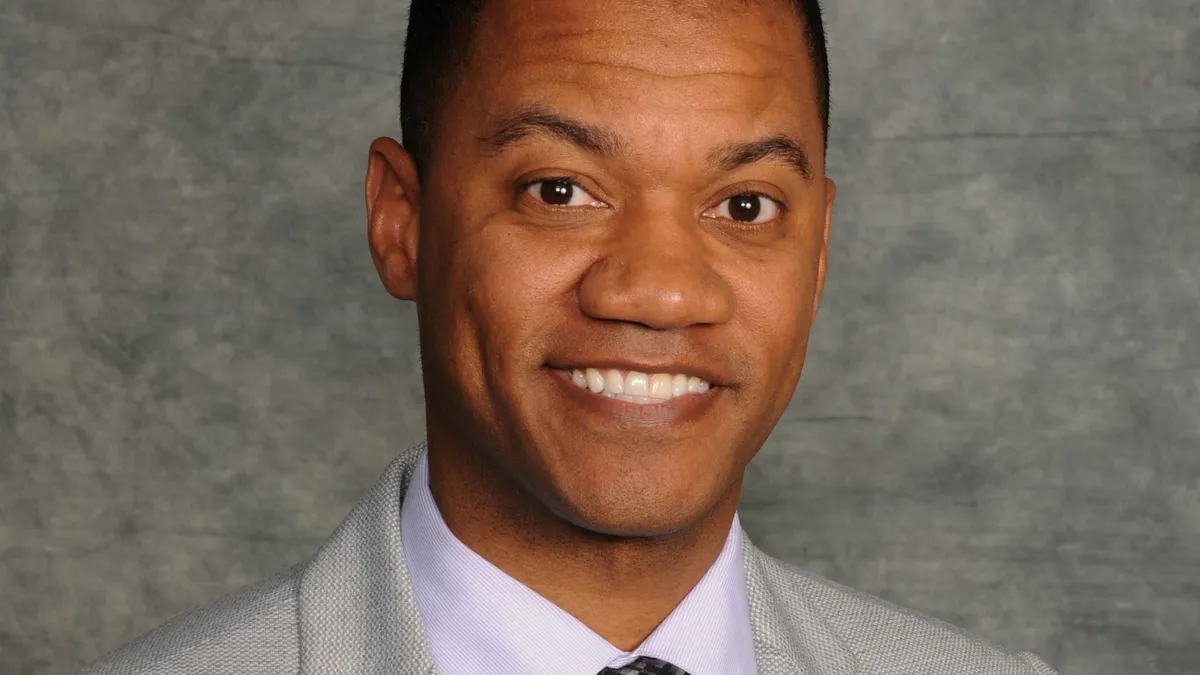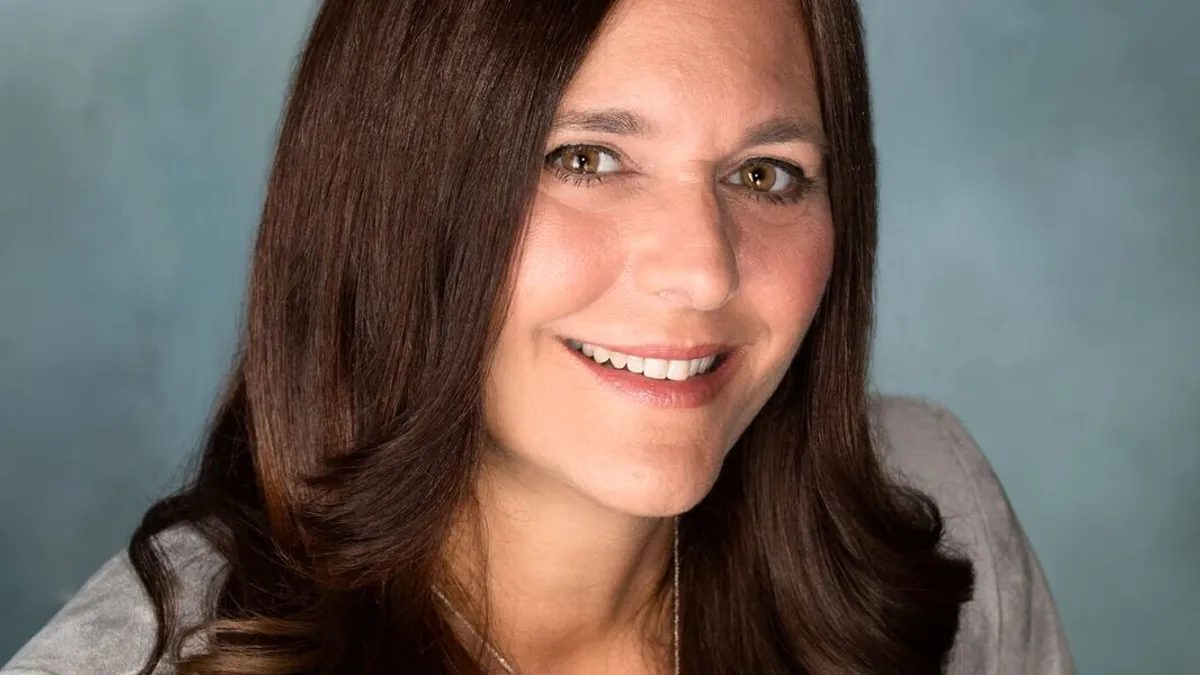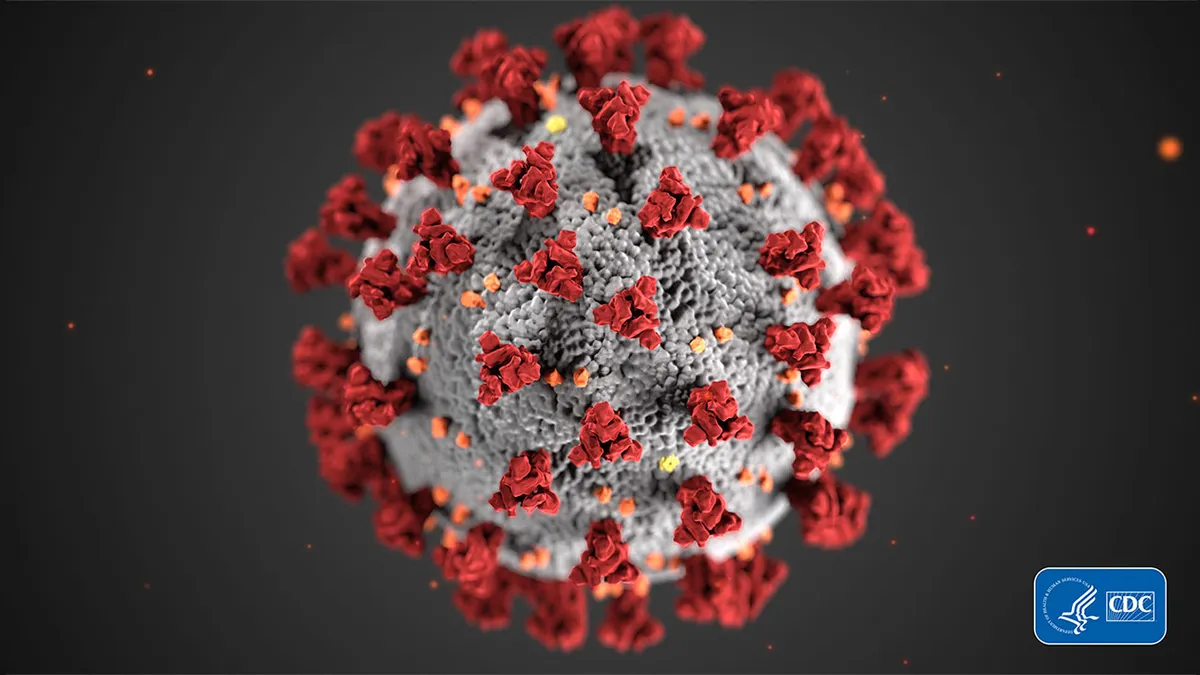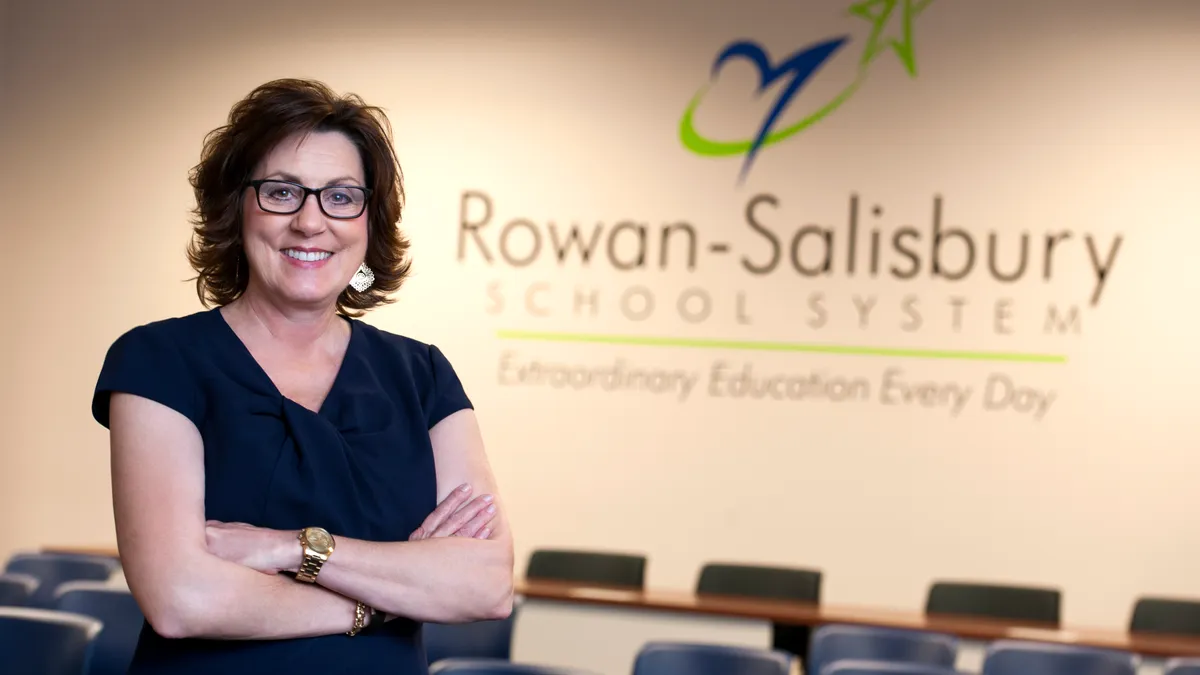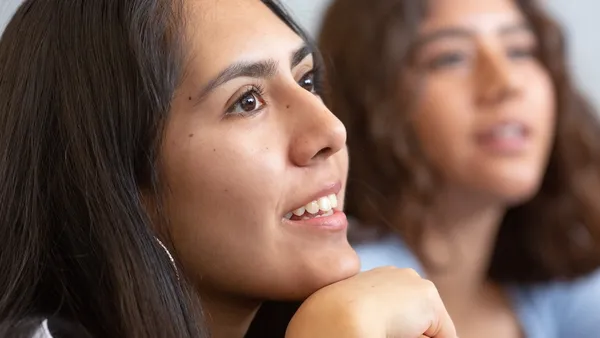Lessons In Leadership is an ongoing series in which K-12 principals and superintendents share their best practices and challenges overcome. For more installments, click here.
Located outside Houston, Texas, Klein Independent School District serves a diverse population of close to 54,000 students. Its commitment to innovation and its array of arts, career and technical, athletics and other programming have earned accolades from organizations like the Texas Art Education Association and District Administration, and the most recent data available shows its graduation rates top state averages even with a high percentage (44.9%) of at-risk students.
Superintendent Jenny McGown, who in 2019 became the first woman to lead the district, has spent all of her nearly two-decade career in Klein ISD and credits its success to a long tradition of excellence and dedication to students. "When I [celebrate the district's success], I always want to be clear that I'm celebrating thousands of people who are getting up every day and sacrificing tremendously to help us accomplish our mission," McGown recently told K-12 Dive.
Over the course of our conversation, McGown detailed what being the first woman to lead Klein means to her, what it was like tackling a global pandemic during her first year on the job, the importance of communicating with heart and more.
Editor's Note: The following interview has been edited for brevity and clarity.
K-12 DIVE: As your district’s first female superintendent, did you feel any sort of pressure stepping into that role? What does it mean to you overall?
JENNY MCGOWN: Well, I'm very thankful for the opportunity to serve as superintendent. I'm also grateful the experiences I have in the district really helped to prepare me for this role. Of course, anytime you're the first of anything, you feel like you have an additional level of responsibility to do an excellent job and to set a positive precedent moving forward, perhaps for those who may follow after you. So I think about that from time to time, but what I think about for sure every day is to do an excellent job for the over 53,000 students in our care here in Klein ISD.
I've had a number of female students who have said to me how much it means to them to see the first female superintendent in Klein ISD. But like I said, while I'm certainly grateful that happens to be true, what I think about most is just how to do the job well for the students in our care.
During your first year in the role, you've had to face a global pandemic that shook up education as we know it. What were some of the challenges you faced, and how did you navigate and overcome them?
I just marvel at the fact that during my first year as a superintendent, we have lived through a number of historic events, and certainly the one that has dominated our lives the most is living through the pandemic. I will tell you, visiting with my superintendent colleagues — who some of them have been superintendents for over 30 years — it seems that with this situation we all have found ourselves in, it hasn't mattered whether it's your first year or your 30th year. It has been a very challenging time to lead a district.
One of the things I've really leaned into during this time is just remembering that no leader makes it to the top alone, and no leader stays at the top alone. You obviously always have to have a wonderful team of people around you, so I am certainly so fortunate that I have an incredible board of trustees to work alongside [and] amazing senior leadership in the district.
What I'm most proud of when I think about what we've done this year through the pandemic, and what certainly has been part of our success and really at the heart of our success, are all the phenomenal people in what I call the Klein Family. So, all 7,000 employees, from the folks who have been picking kids up on a school bus to drive them to school, to our brave food service folks who were some of the first employees to be truly on the front lines during the initial response to the pandemic. At this point, I think we’re up to 2.9 million meals served during this pandemic. And of course, our incredibly brave heroes of this entire moment, our classroom teachers who have been right in the middle of everything, finding new, innovative ways to make sure every child gets an excellent education given the extraordinary circumstances we're all in together.
The people are what makes Klein ISD so special. And the people are what have allowed us as a district to move the world forward for our kids and for our community during this pandemic.
Some of your earlier roles in the central office were in the teaching and learning division. Did those experiences also help give you a better understanding of the challenges being faced on a curriculum level?
Certainly. One of the things I've really tried to prioritize in the role of superintendent is keeping a direct line of sight to the classrooms and making sure that I'm spending time in classrooms where I'm observing and experiencing firsthand what our teachers are experiencing firsthand.
I've always loved the classroom. I still think of myself first as a teacher, and being able to make sure we spend time not just hearing about what teachers are experiencing, not just having people in different departments or on campuses tell us about what what's going well and what's challenging, but actually being there in the classroom to experience these things alongside our teachers has been really helpful. Because in this learning environment, we've been forced to learn so much so fast under so much pressure and have had to make so many adjustments, and just consider things that we haven't had to consider in the past.
So it's just been incredible to see the way our teachers have really risen to the occasion. It’s no surprise for me, because teachers are amazing every single day of the week, but certainly I think our whole world has that greater appreciation for what teachers do every single day and the challenges that they overcome in trying to make sure that every student gets an excellent education.
As schools move toward reopening, masks and other safety measures have been contentious topics in many communities. How have you navigated that in your district?
The most important thing for us is just to stay focused on keeping our students and staff safe so we can keep our schools open, because we have been open in Klein ISD since September.
I'm so proud to say that now, with over 80% of our students back in-person, that number has just continued to grow all year long as people gained confidence in the systems and protocols we have in place to keep everyone safe. We have never had to close the schools for even a day. We've never had to close a classroom.
So just keeping the focus on what our mission is, and that's to make sure every student gets an excellent and equitable education, one of the ways we do that is by taking health and safety protocols to heart.
People have different feelings about health and safety protocols, and what I appreciate is that collectively, as a community, everybody has put their own feelings and sacrificed for the greater good — and the greater good is making sure our students get their opportunity to have an excellent education.
I remained really focused on what our key objective and what our mission is. And I empathize with the way people are experiencing the pandemic, the way that people feel, recognizing that, again, there's a wide spectrum of emotions and perspectives right now in our world. So empathizing with and acknowledging those feelings and sentiments, but again, just staying focused on making sure our students and staff are safe so they can deliver and receive an excellent education.
One of the things that comes up a lot over the last few years is the value of homegrown leadership in a district. Do you feel your experiences living in Klein ISD and spending your whole career there have possibly given you a very deep understanding of the community and its wants and needs?
Well, I'm very fortunate Klein ISD has been my professional home my entire career and my personal home for much of my life. When you have the benefit of being able to really know a place well, and to know the people well, you have the advantage of being able to feel and experience very deeply the community, its desires, its needs [and] its points of pride because you've experienced it and in many ways have had the privilege of being able to help create those things. So that certainly is an advantage.
The one thing I try really hard to do every day, though, is ... to keep a beginner's mind and not make assumptions or move too quickly because I think I already know how people feel about things — to really take the time to listen, to gather feedback, to make sure something that might feel instinctual because I am homegrown is accurate.
I think the only way you can do that is by continuing just to love people and listen to people and try to really understand their perspectives and their needs and their desires. So I do work hard to discipline myself, to keep a beginner's mind, even though I am homegrown.
You were recognized for strong communication by the National School Public Relations Association. What are some of the ways you make sure you're staying in touch with the community and understanding what their feedback on various decisions and scenarios are?
One of the things I try to focus on in communications is really knowing the audience, because in a school district as large as Klein ISD, in a community with a quarter of a million people, I'm sure you can imagine we have a variety of audiences based on where we are and what we're doing.
So, again, [it's] trying to really know people well and know the audience well and to share messages that are meaningful and relevant and interesting to them. And recognizing there are different audiences in the district, and different things are important to different people or groups of people, so trying to really be empathetic and cognizant of their needs and making sure the message matches up with what they are interested in learning about or what they need in order to be successful.
I also really try to think about the message and making sure whenever we're communicating, we're very clear and transparent, and that we also never forget in all that clarity and transparency that messages ultimately land in human hearts. So remembering that we're not just communicating with people's heads and giving them information for their heads, we're also acknowledging their humanity and trying to be really thoughtful and considerate about the way we deliver our messages and the impact our messages have on people's lives and their families and their home and their community.
The other thing I try to focus on is sharing information at a frequency that is helpful for the audience and appropriate for the method. At the beginning of the pandemic, of course, when conditions were constantly changing, we were getting all sorts of new and conflicting guidance at times, so making sure the frequency of messages was very high so people felt like they were connected and they had timely, accurate information, and that they could trust that, if things change, they would hear an update from us.
So I think just keeping those things in mind: Who's your audience, what are their needs, making sure your message is not just for people's heads and remembers that there's a human being at the end of it with a heart, and that what we share has a direct impact on their life. Adjusting the frequency based on that context and the circumstances at the time certainly helped our district to communicate with excellence, both in pandemic and non-pandemic times, but certainly in the midst of emergency situations, that communication is even more important.



